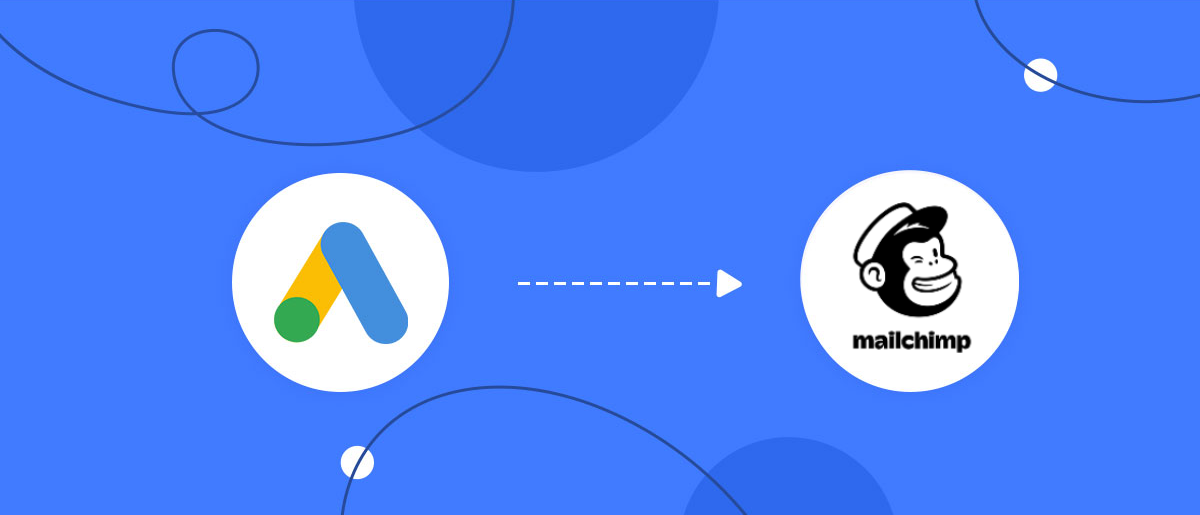Automation is a progressive approach to increasing the efficiency of business processes. In the field of e-commerce, it simplifies the collection and processing of data, the management of advertising campaigns, and interaction with customers. Google Lead Form is a tool built into Google Ads that allows you to collect information on potential customers without redirecting them to an external site. This simplifies the ordering process for users, increases the likelihood of filling out the form, and boosts conversion. Mailchimp is an email marketing platform that helps create, send, and analyze advertising mailings. It provides a large library of ready-made templates and the ability to segment the audience for more accurate targeting. In addition, this service has powerful tools for automatic sending of letters, personalization of content, and analysis of campaign effectiveness, which saves time and increases marketing efficiency.
Google Lead Form and Mailchimp services separately demonstrate excellent results in their areas. Using them, you successfully optimize a number of business processes. But what if we tell you that you can get much more from them? Do you want to automate your work with them as much as possible? In this article, we will tell you how to quickly and easily perform Google Ads Lead Form and Mailchimp integration using our online connector, SaveMyLeads.
Google Lead Form and Mailchimp Integration – Top-Level Automation
Mailchimp and Google Ads Lead Form integration improves the accuracy and speed of workflows in e-commerce and marketing in particular, thereby taking business automation to a higher level. When both platforms work together, data from each new form filled out and sent by a lead is automatically transferred to Mailchimp and converted into new contacts there.
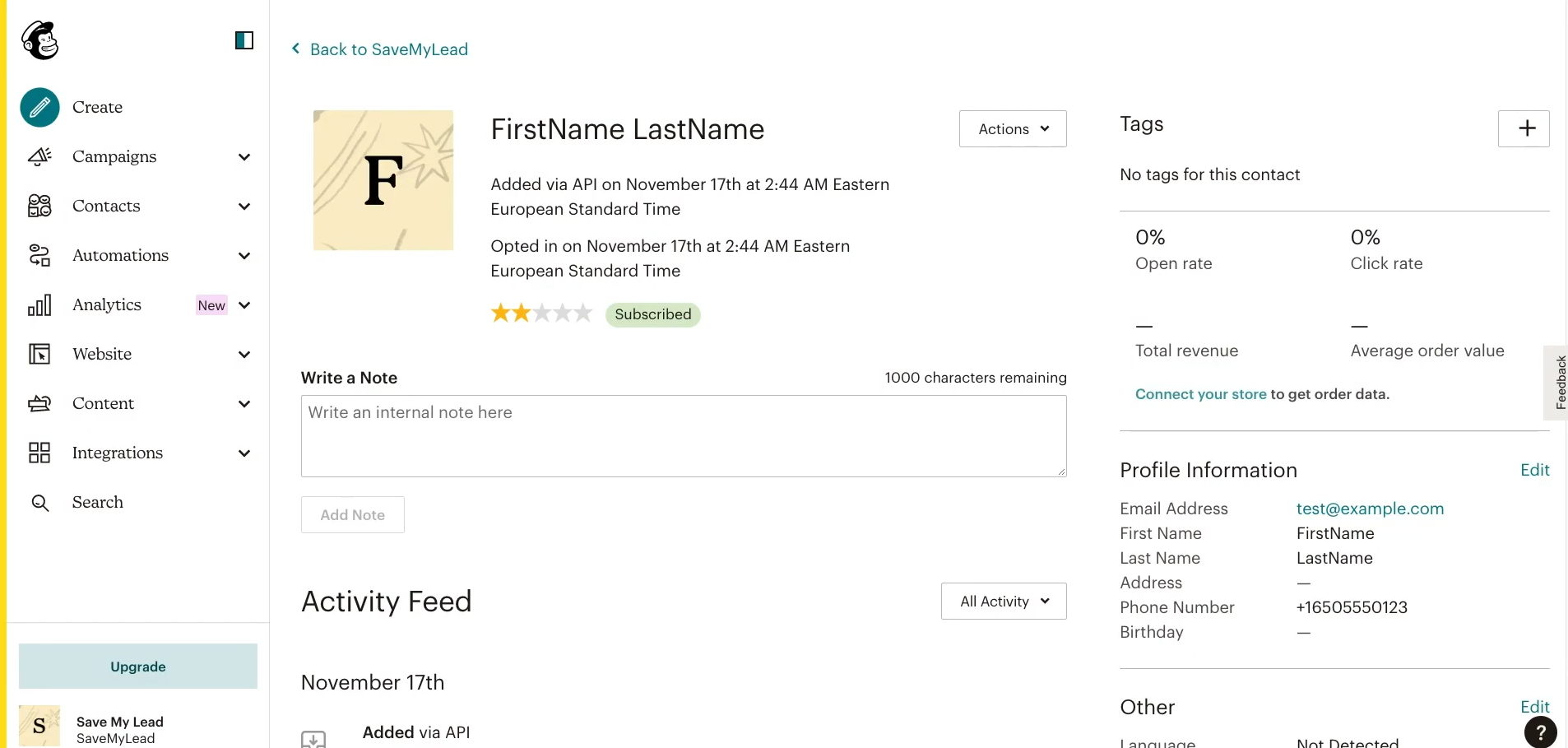
What does this give? Here are a couple of case studies of the real effectiveness of integrating these services:
- The car dealer uses Google Lead Form in their advertising campaigns to collect leads. Every time leads fill out the form, their details are automatically added to Mailchimp. This allows the dealer to instantly send personalized offers, such as test drive invitations, special discounts, and newsletters about new models, which significantly improves customer engagement and increases sales.
- The language school uses Google Lead Form to attract students interested in learning new languages. The form data is sent to Mailchimp, where a newsletter is created with information about courses, upcoming workshops, and available discounts. This not only simplifies the process of recruiting new students but also helps the school stay in touch with potential customers, ensuring high conversion and retention rates.
How to Set Up Google Lead Form + Mailchimp Integration
To connect Google Lead Form and Mailchimp, you don’t need to learn programming or understand the details of the API. You also don’t need to seek help from IT specialists. The SaveMyLeads online connector will do all the necessary work for you. Its functionality allows you to quickly and easily set up a connection between the systems. The SaveMyLeads interface is intuitive, so the entire installation process will take no more than ten minutes. In addition, you will have access to detailed text instructions and a video guide from the SaveMyLeads team, which will help you connect and set up your accounts without errors.
- Automate the work with leads from the Facebook advertising account
- Empower with integrations and instant transfer of leads
- Don't spend money on developers or integrators
- Save time by automating routine tasks
So, let's take the first step together. Sign up for SaveMyLeads if you haven't already. Then you can start the Mailchimp and Google Lead Form integration.
Set Up the Data Source – Google Lead Form
To set up Google Ads Lead Form + Mailchimp integration, first you need to create a new connection. For this, click on the appropriate button.
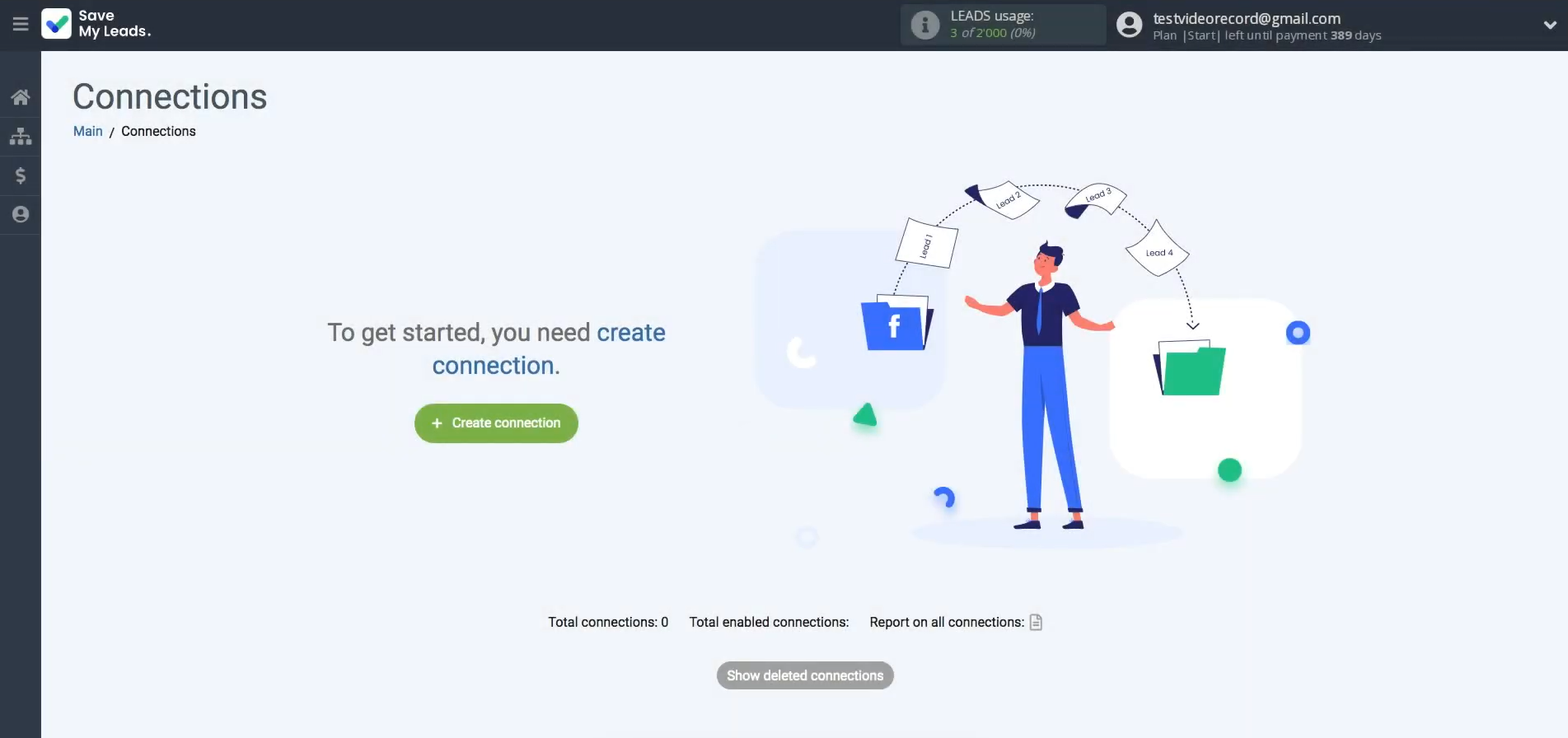
Choose the
system from which you want to transfer leads. You need Google Lead Form.
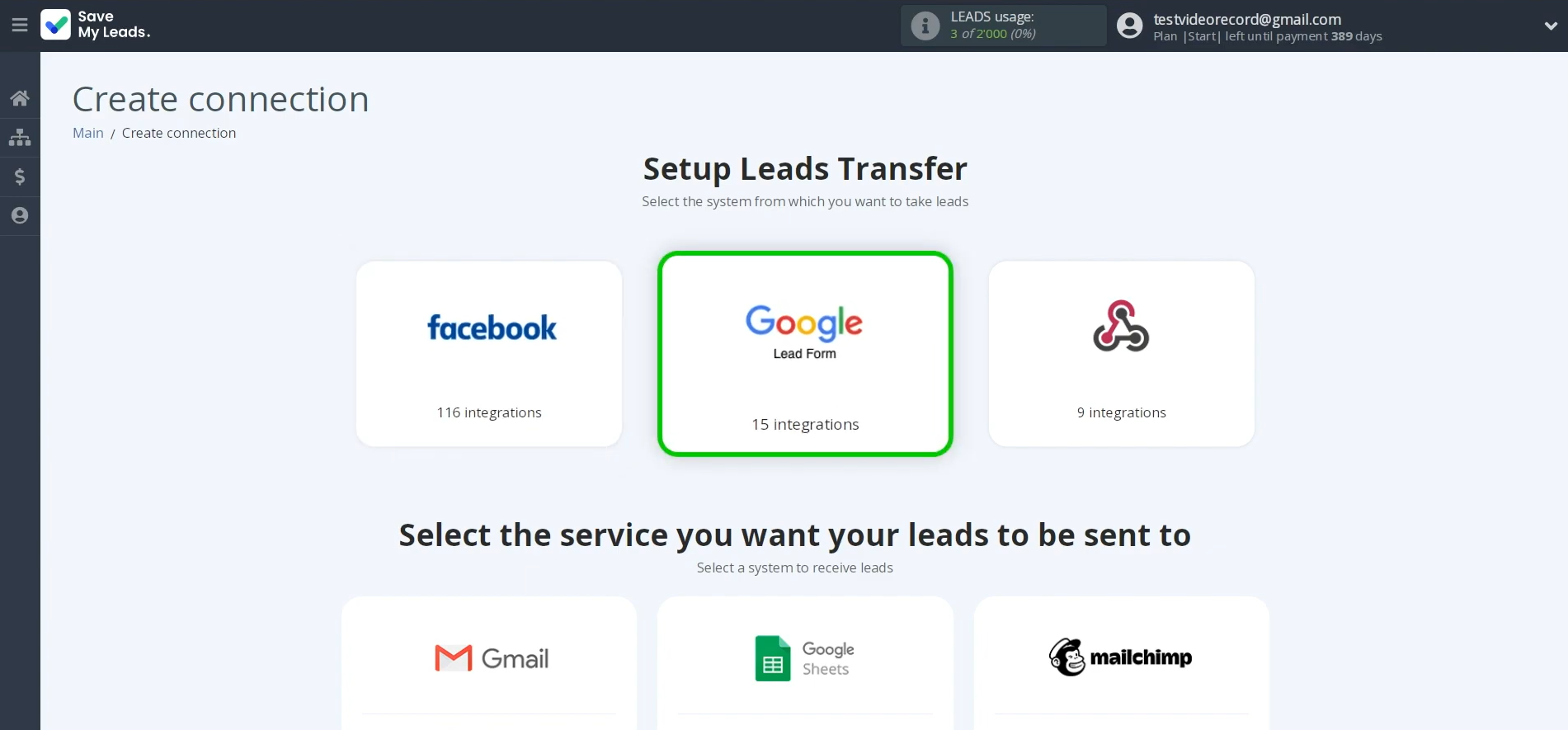
Select one of the
ready-made templates where you want to send leads from the Google
Lead Form. You need "Mailchimp (Add Contacts)".
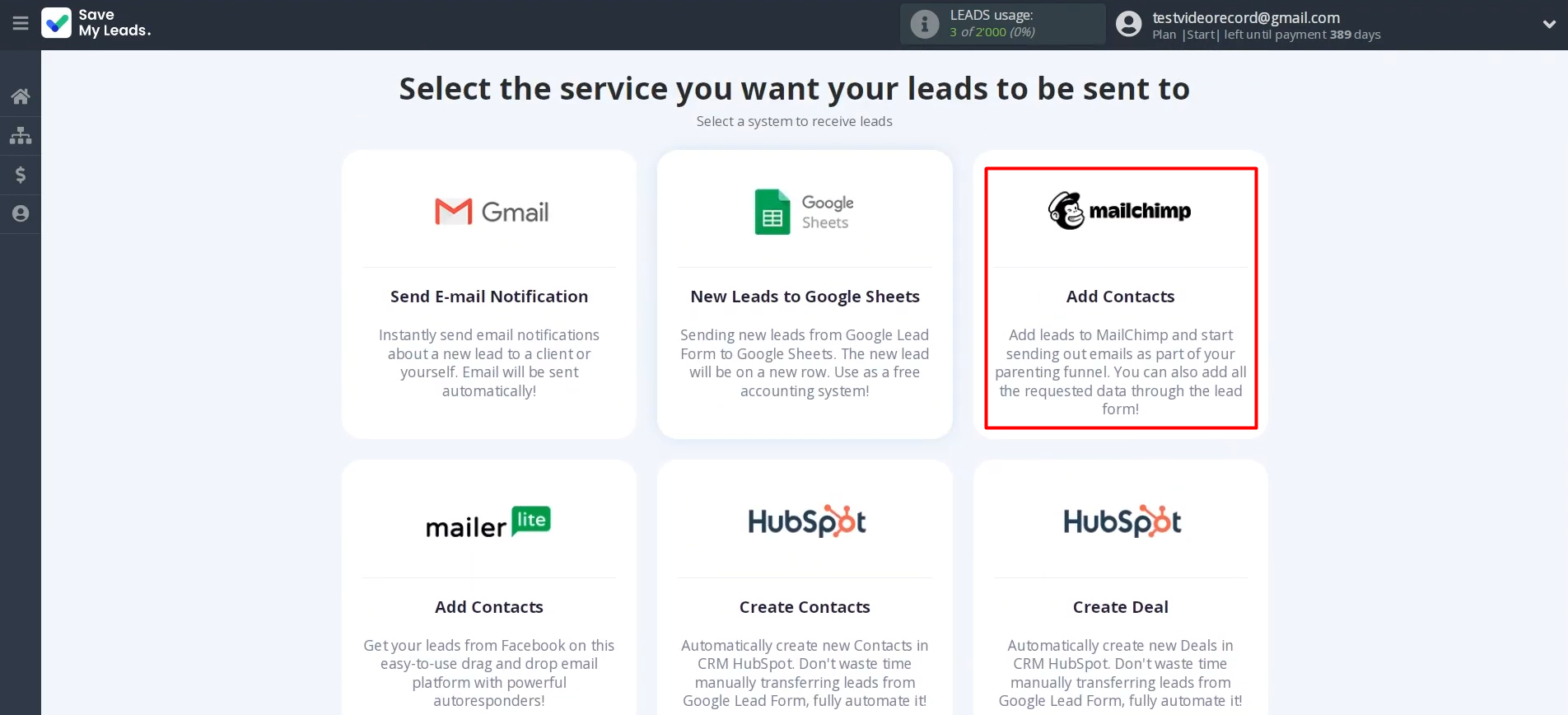
Connect the
Google Lead Form account to SaveMyLeads. For this,
click on the appropriate button.
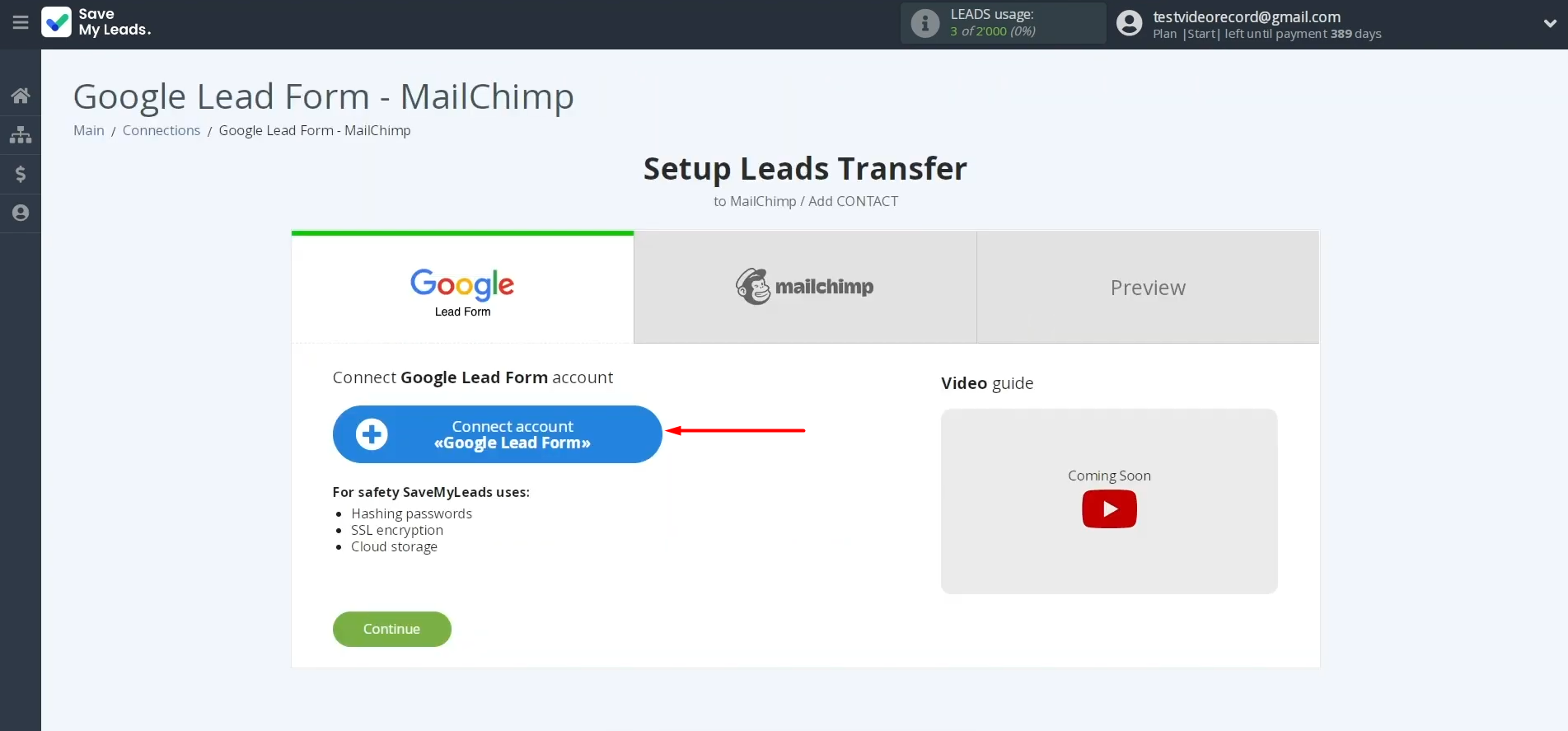
Here, you can
give a name to this connection, or just
click "Continue".
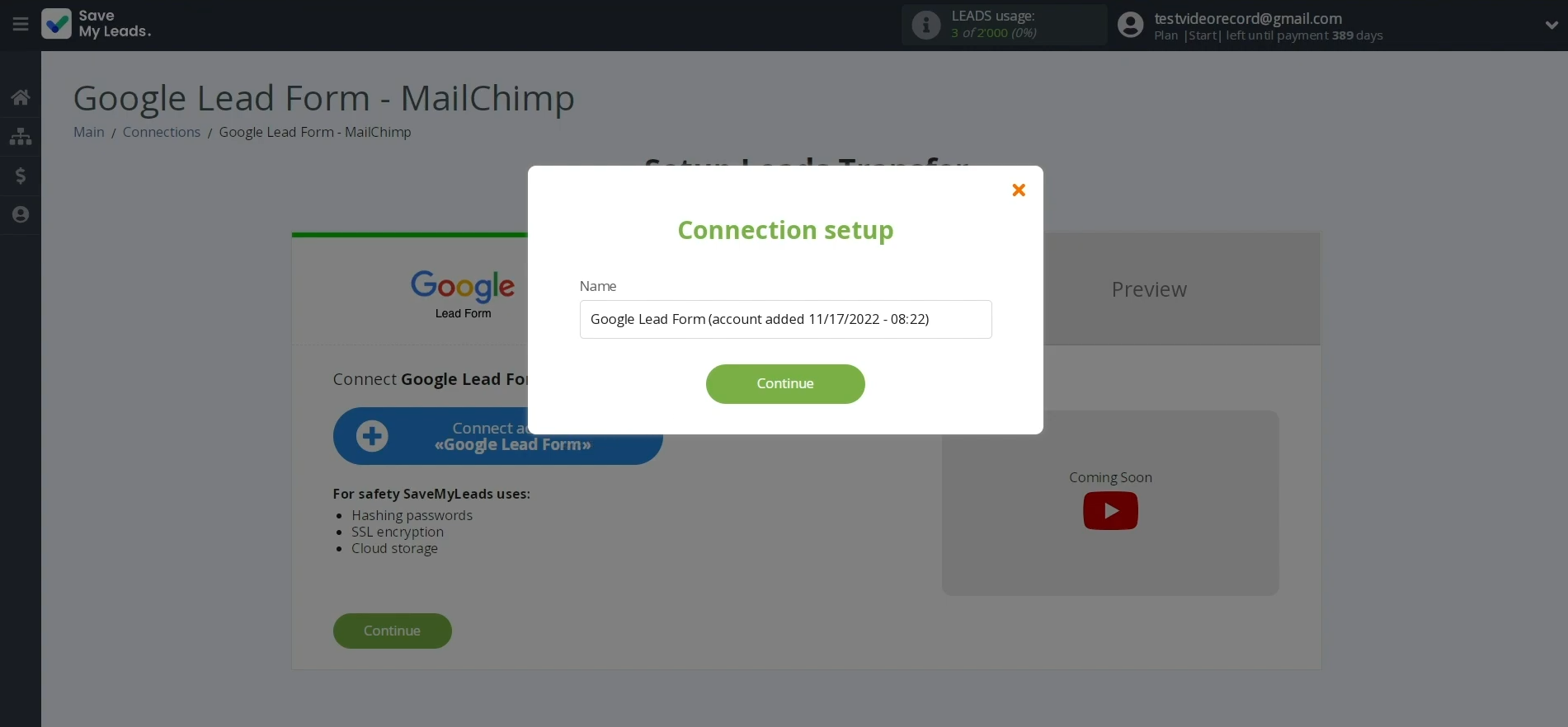
When the
connected account is displayed in the list, select it.
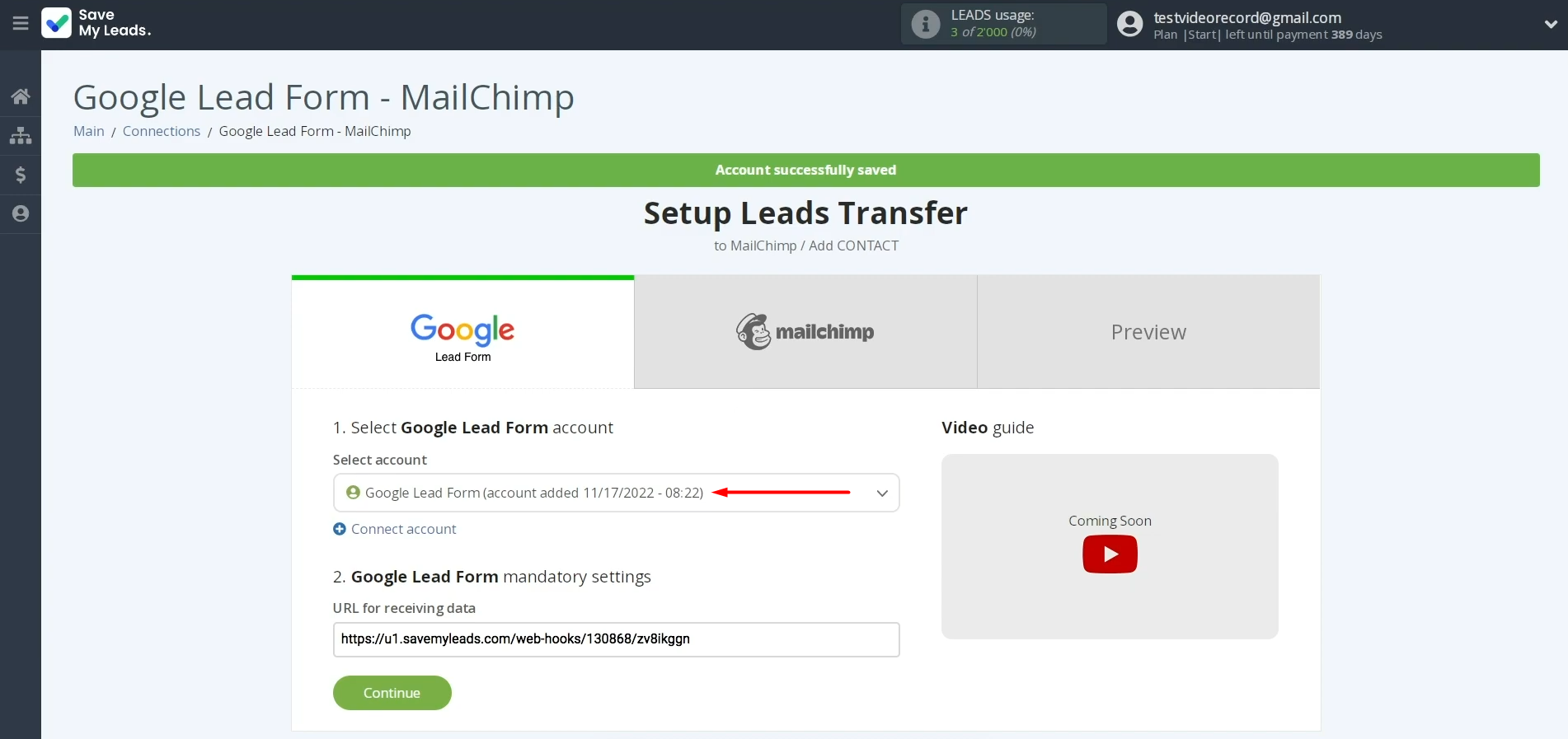
In the second field, you see the URL for receiving data. It is this link that will receive
new data from the Google Lead Form. To continue setting up, copy the URL.
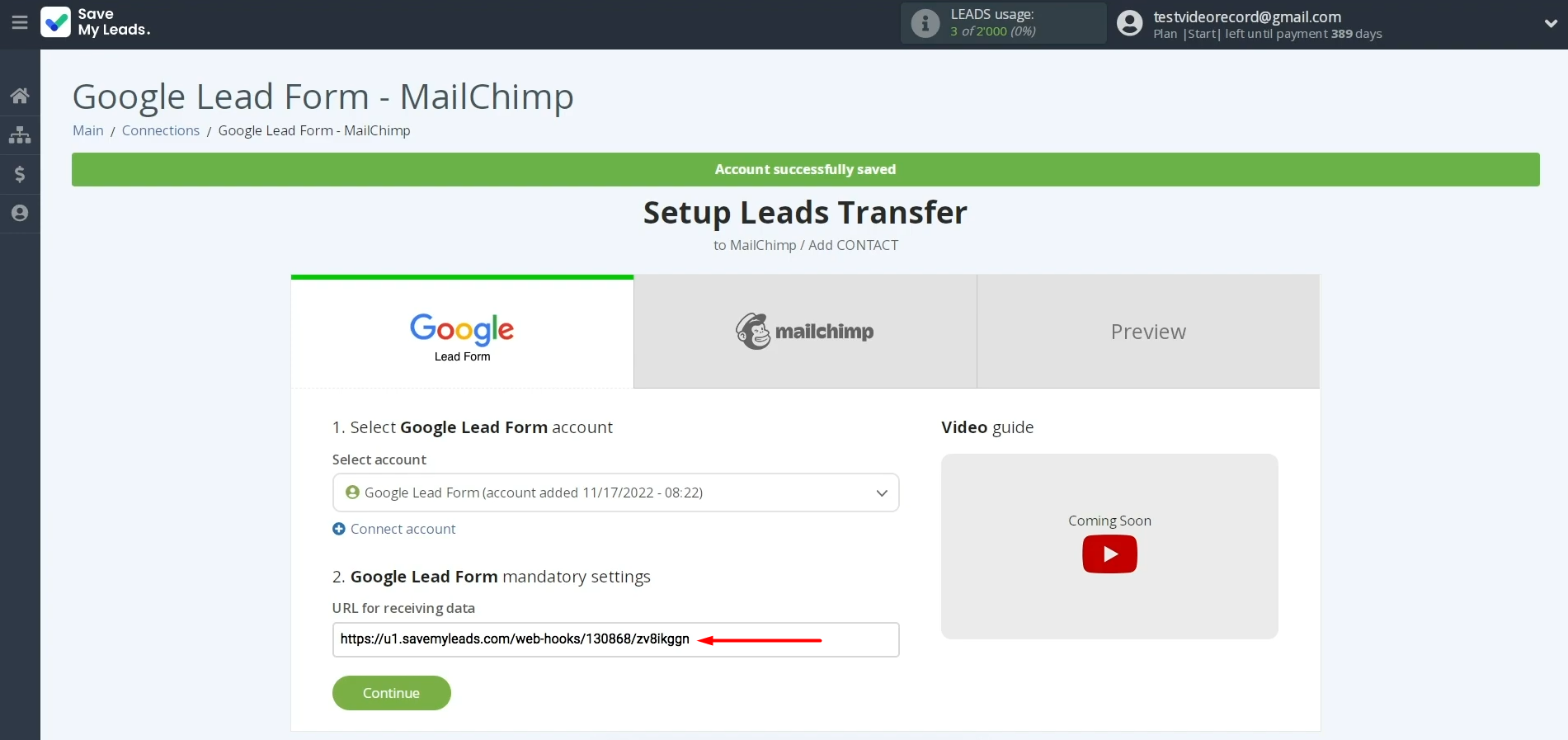
Go to the
"Ads and Assets" section in your personal Google Lead Form
account. You need the
"Assets" tab. Make sure the Lead Forms tab
is checked.
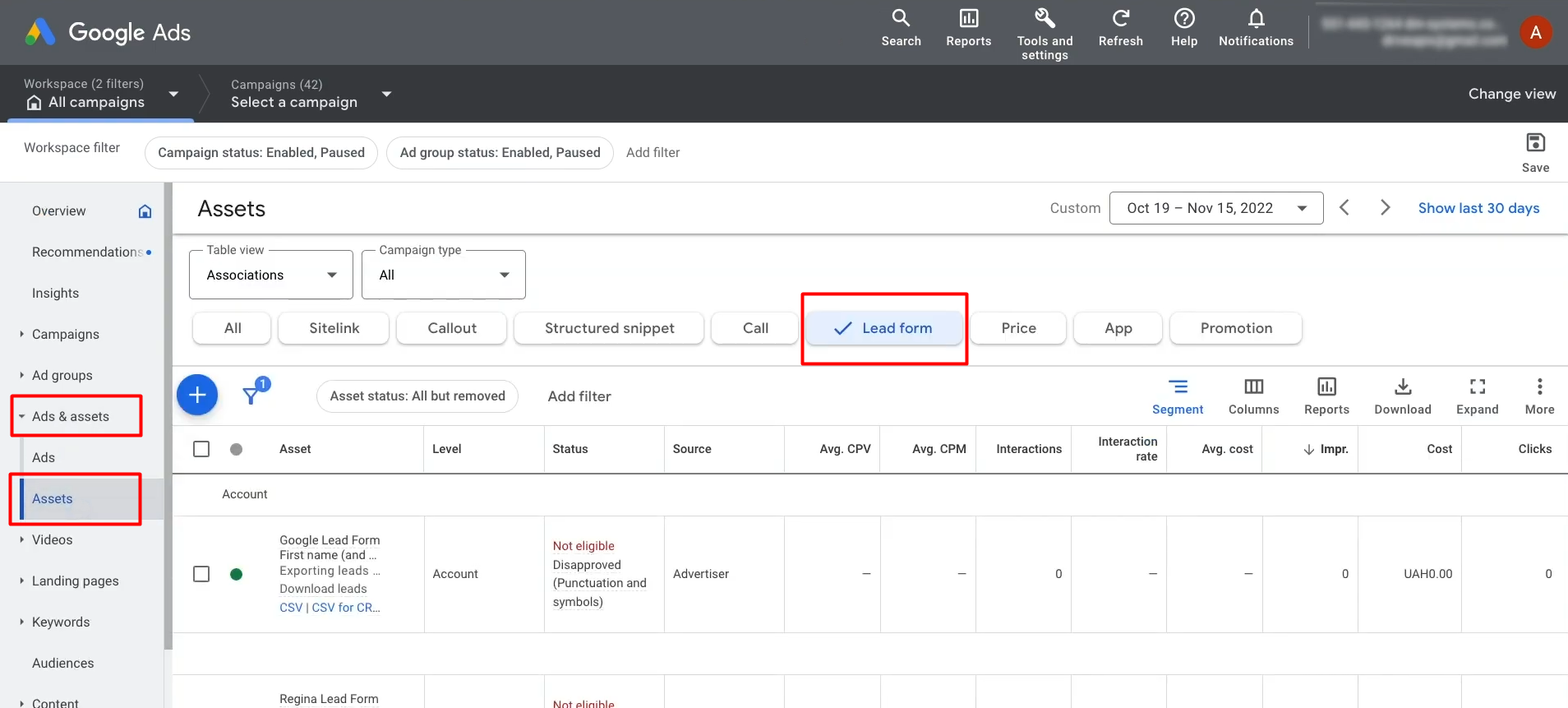
Go to the
form from which you want to receive data.
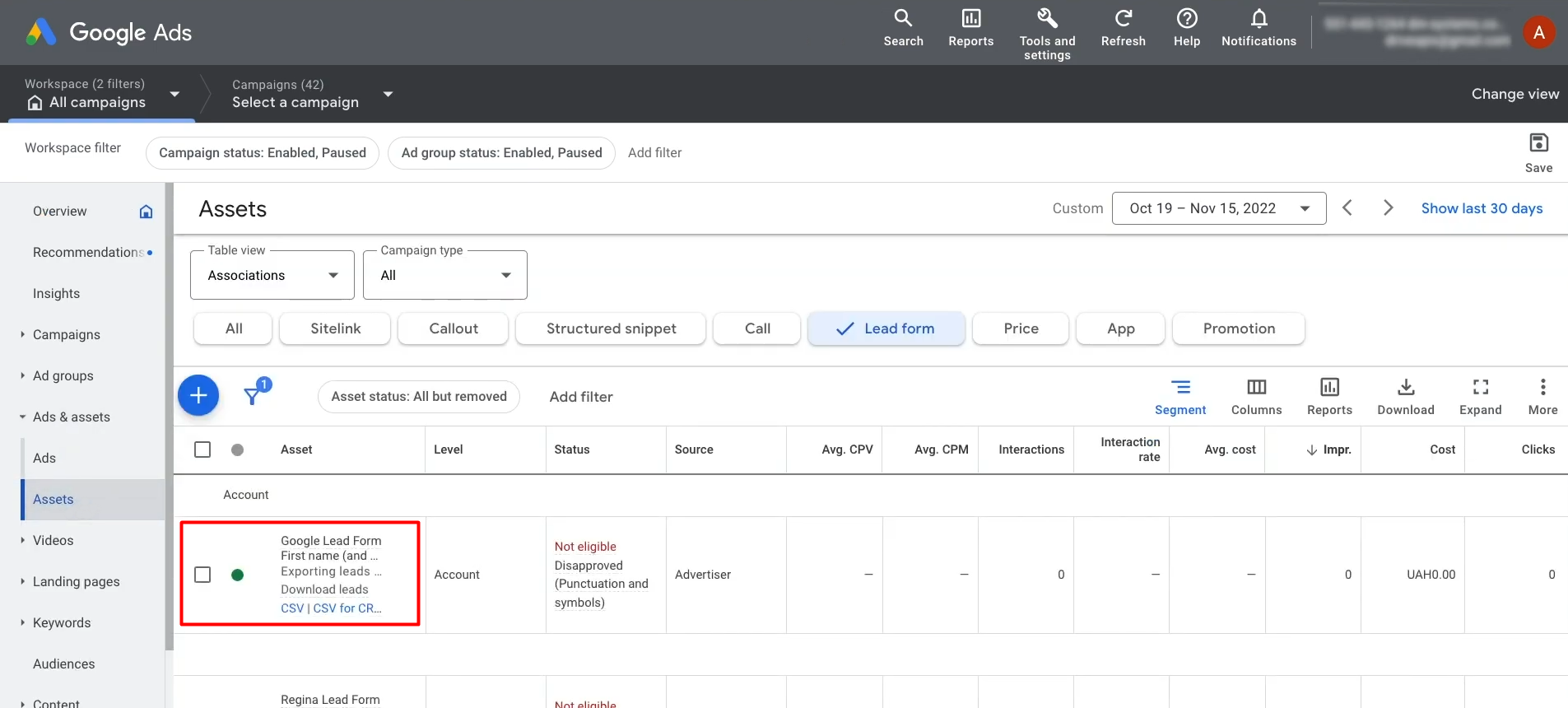
Find the
section "Other Data Integration Options".
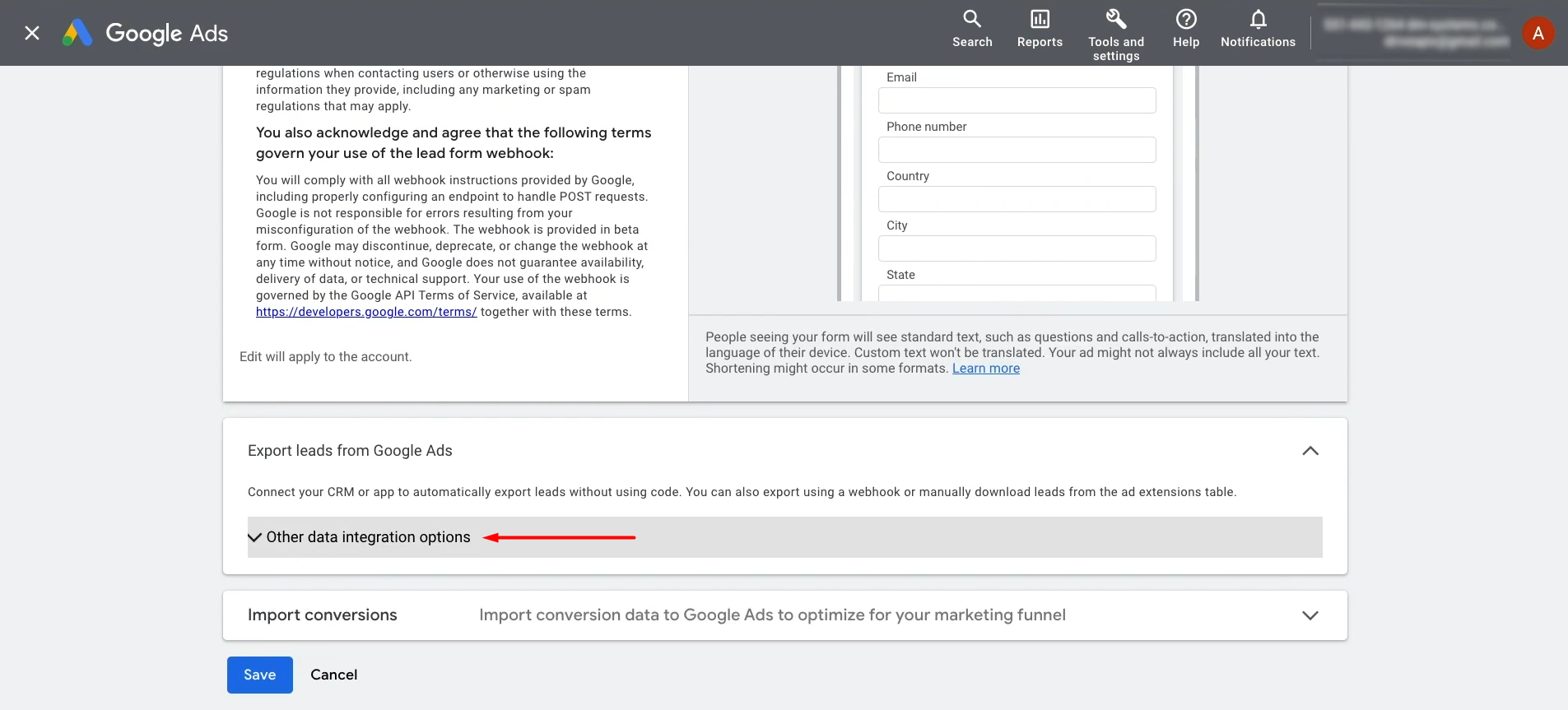
Paste the link copied from SaveMyLeads into the appropriate field.
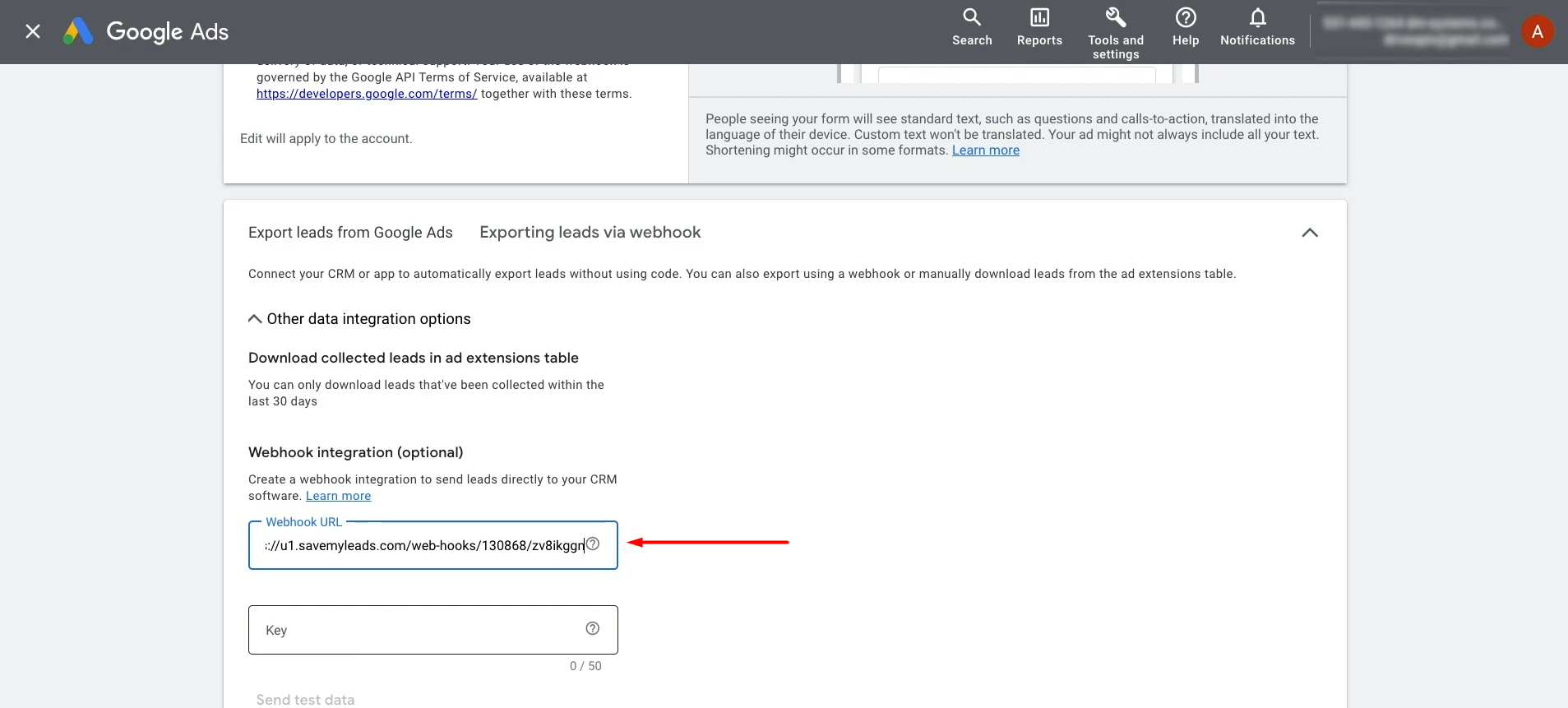
Next, as a
key, specify the last part of the URL.
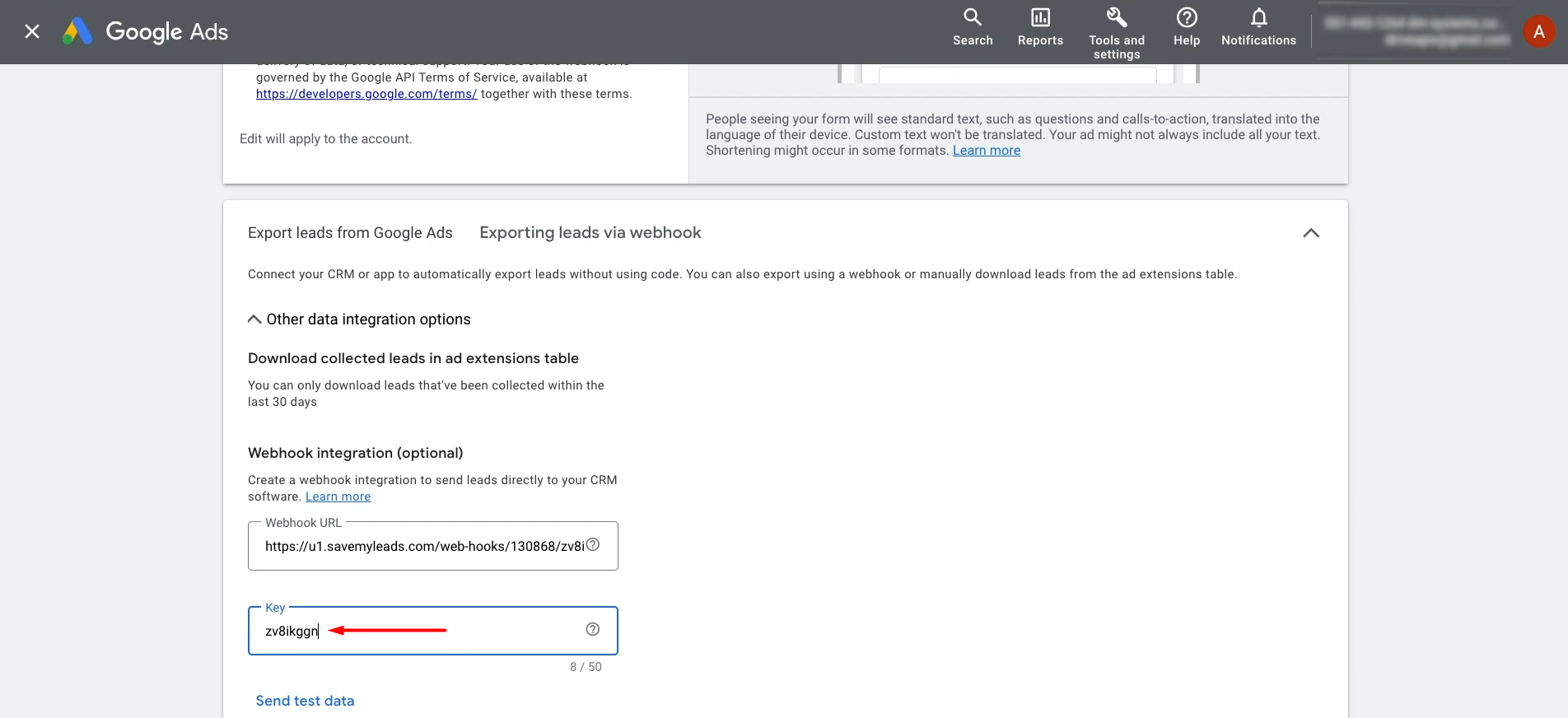
To continue
the setup, you need to
generate test data. Therefore, click "Send Test Data". Don’t
forget to save the
changes.
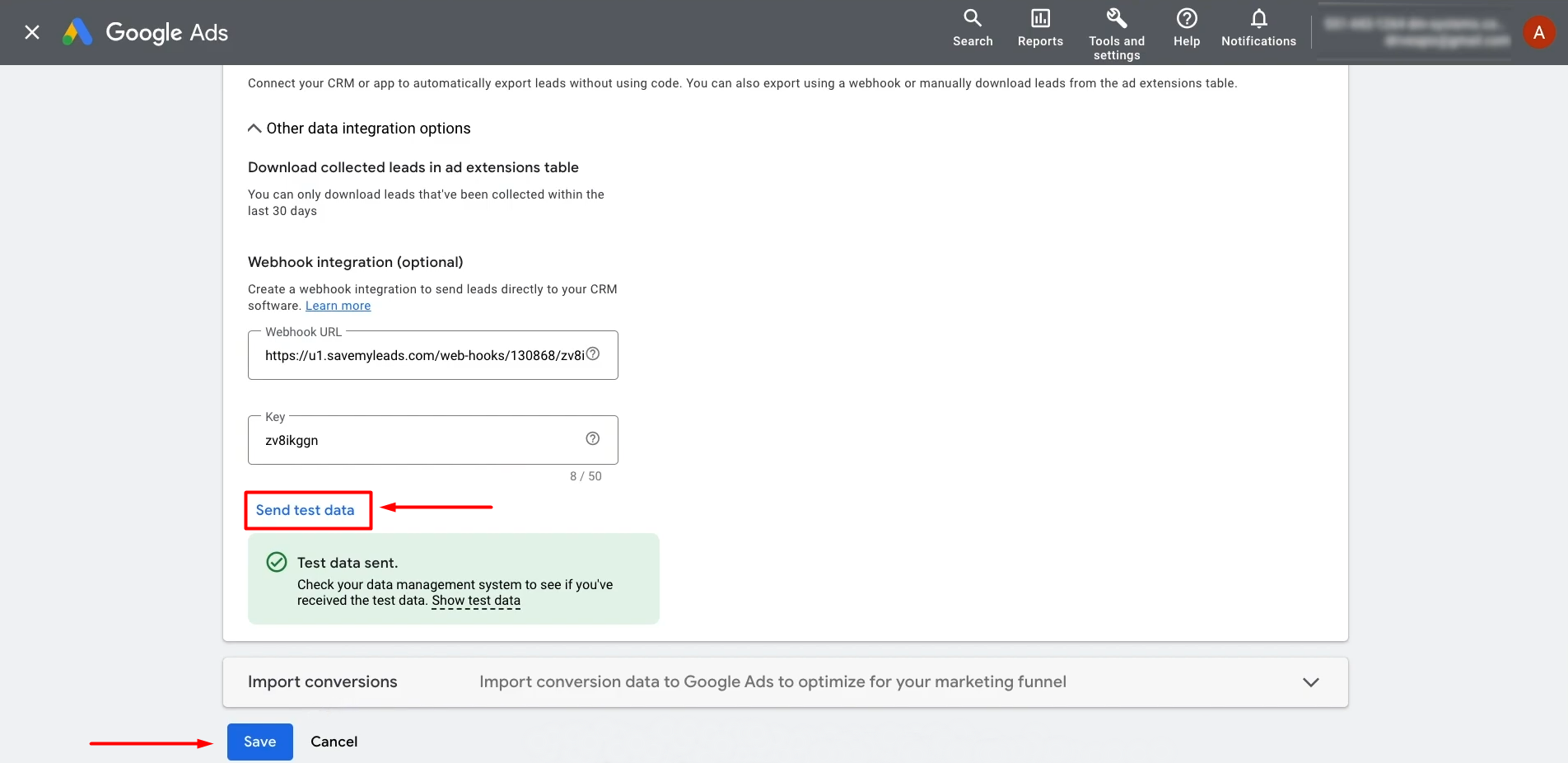
Now, you can return to SaveMyLeads and continue setting up.
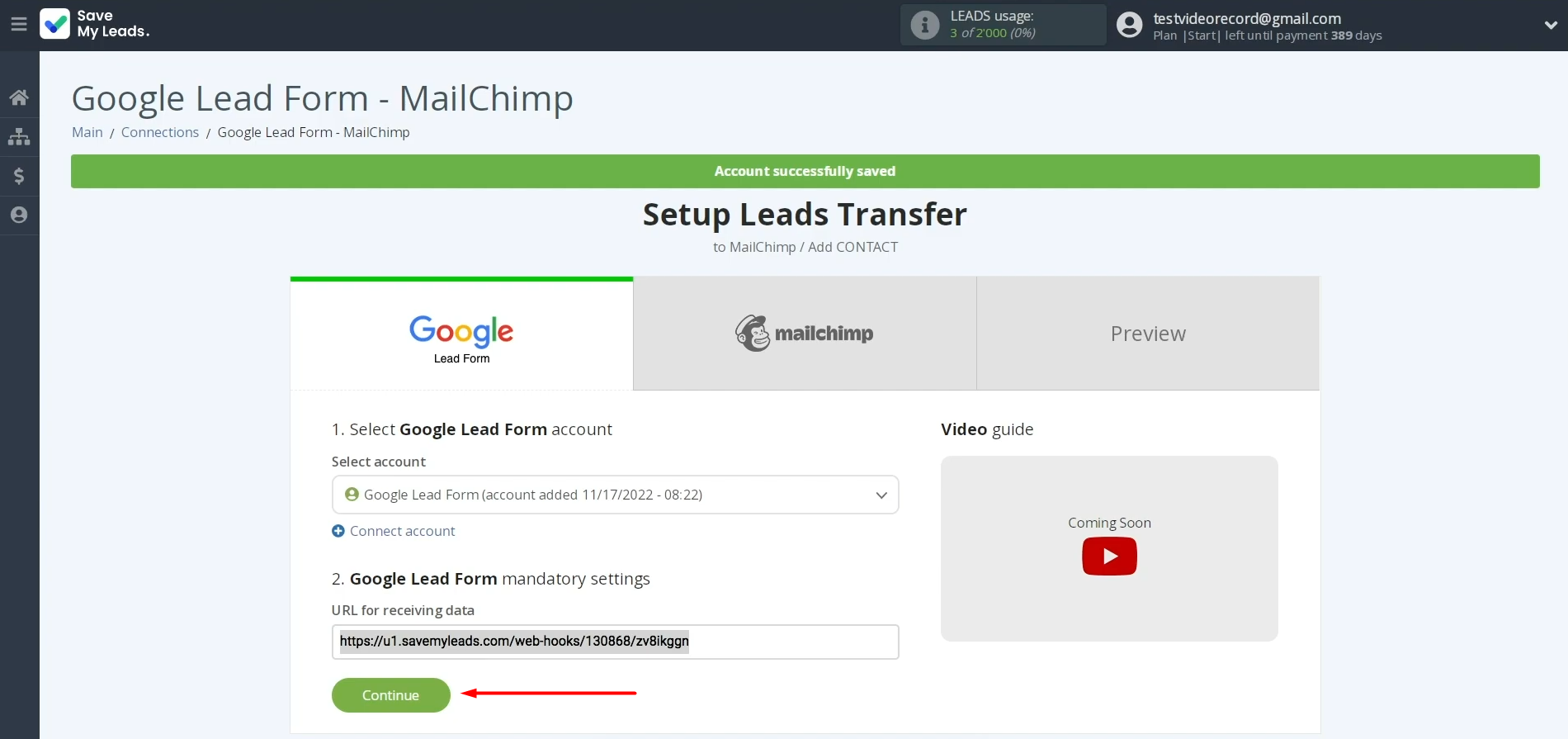
Set Up the Data Receiver – Mailchimp
To set up Mailchimp + Google Ads Lead Form integration, you need to connect your Mailchimp account to SaveMyLeads. For this, click on the appropriate button.
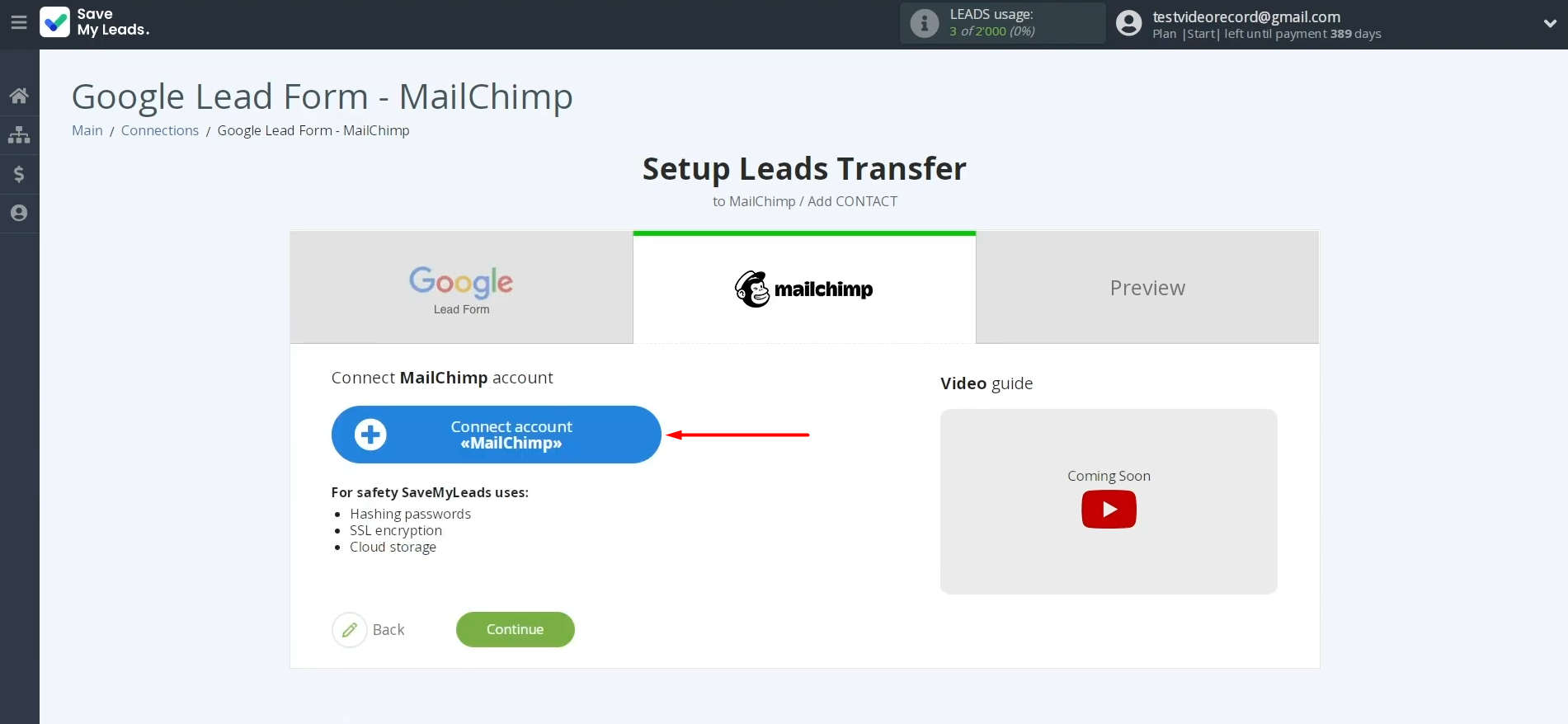
In this
window, you must specify the API key.
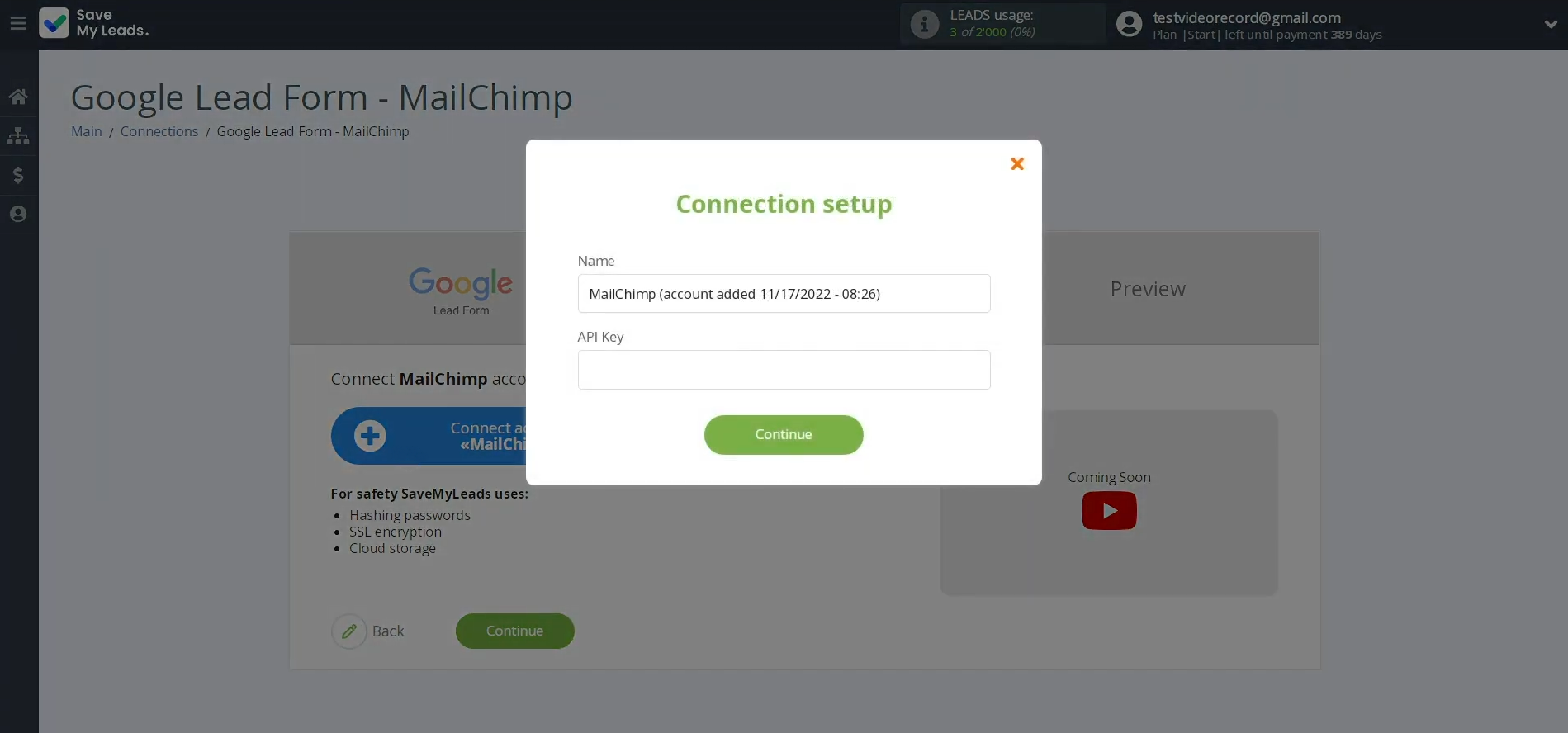
To receive
it, go to the profile section of your personal Mailchimp account.
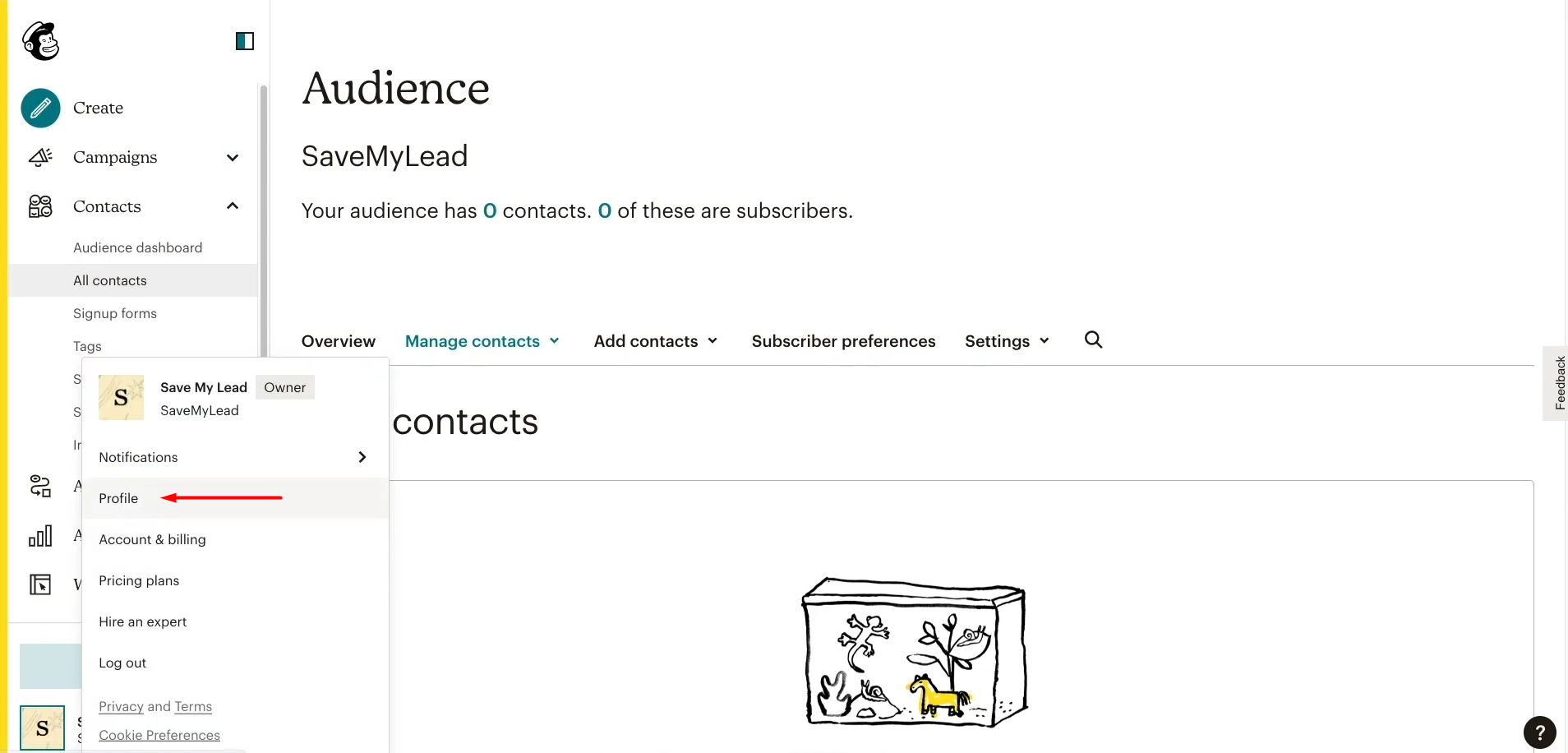
Next, go to
the "Extras" section and select the "API Keys" option
there.
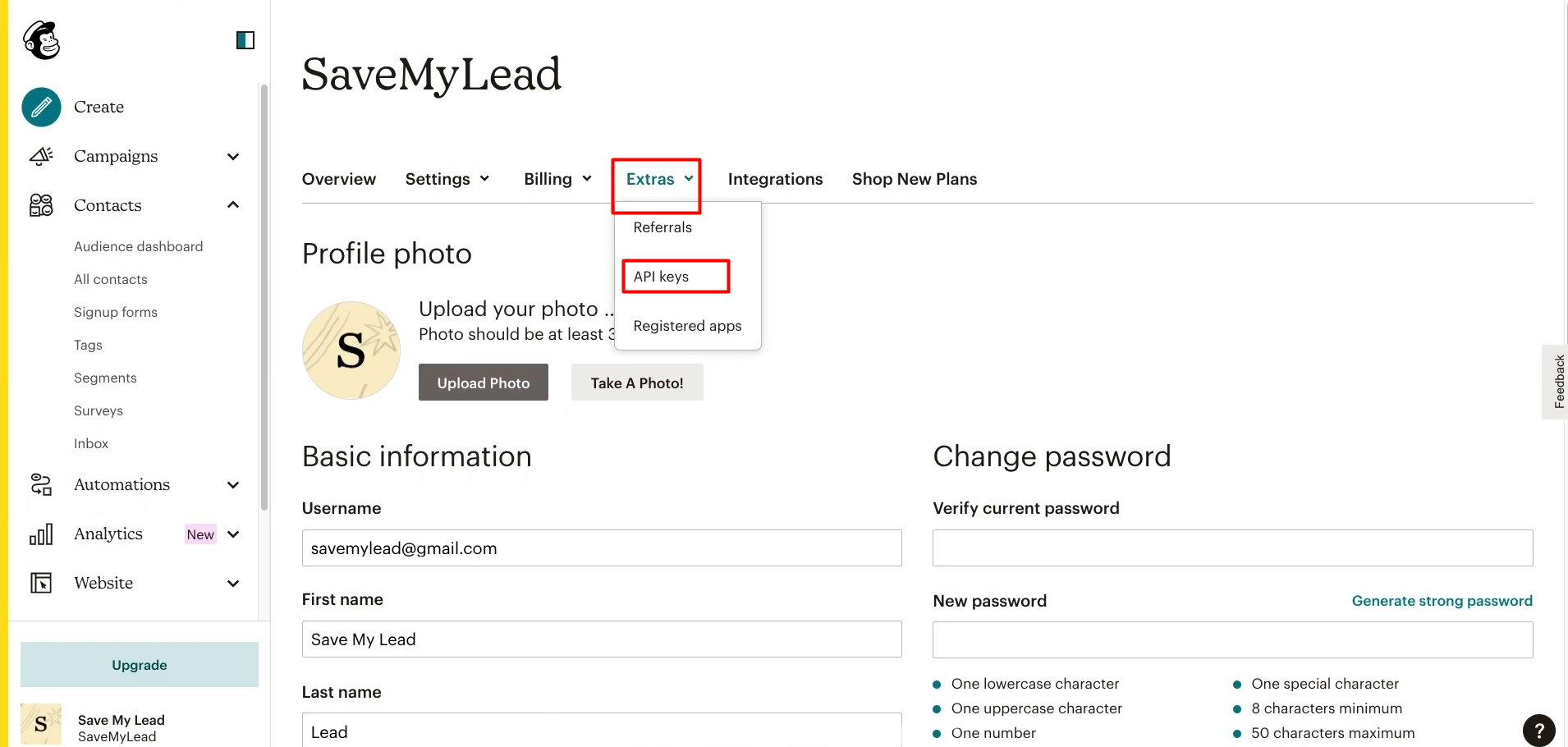
If you have
not created API keys before, click "Create a Key".
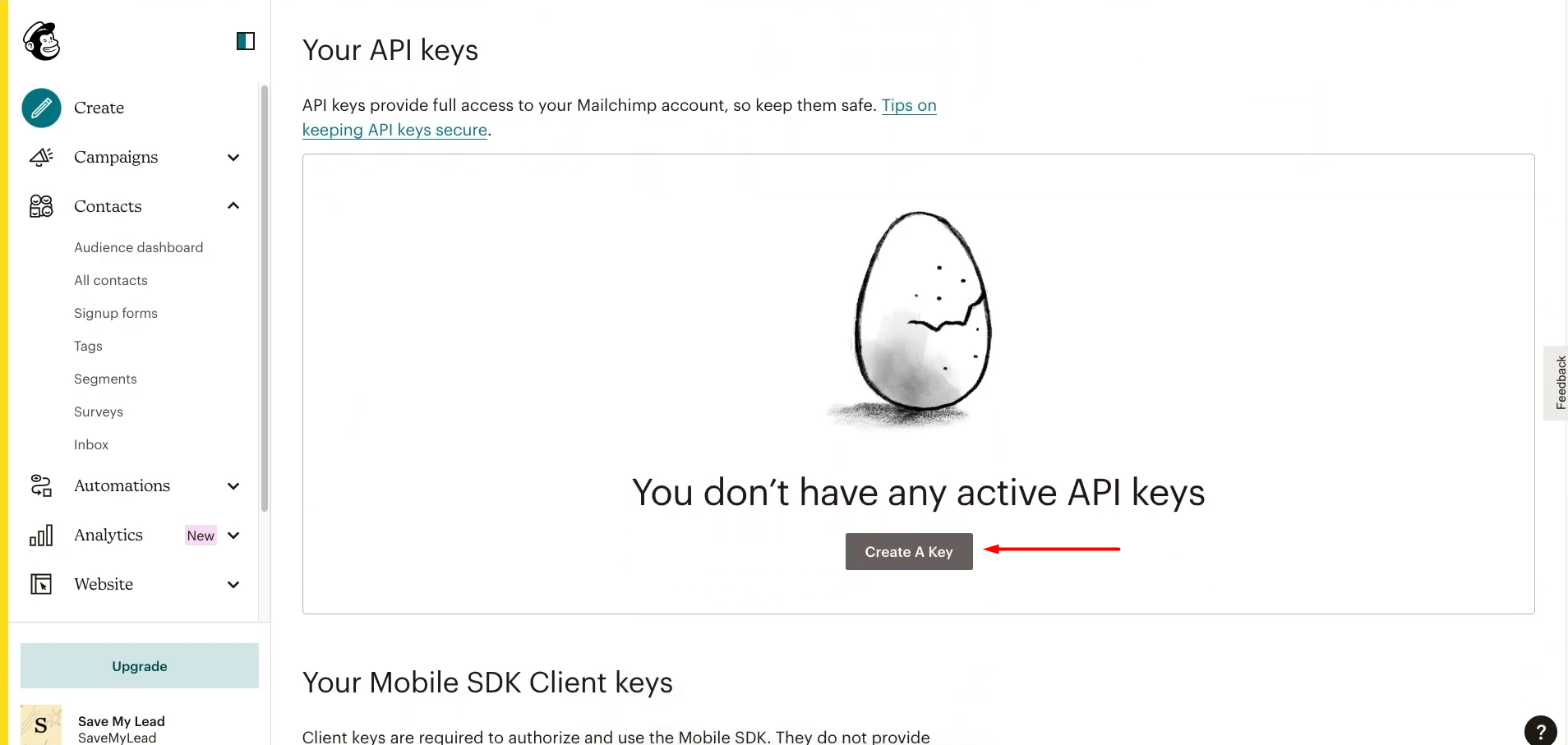
Copy the API
key.
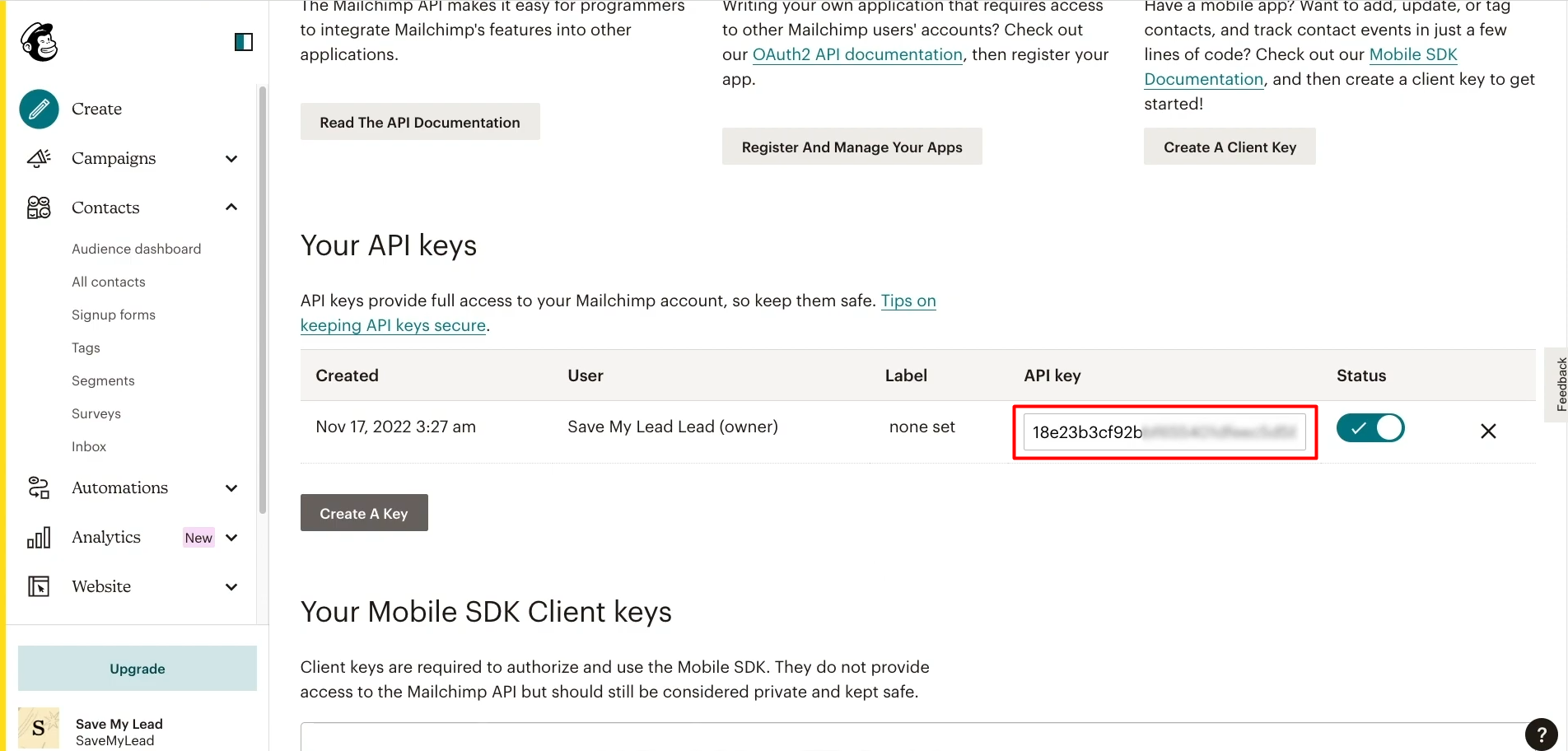
Paste the API
key into the appropriate field in SaveMyLeads and click "Continue".
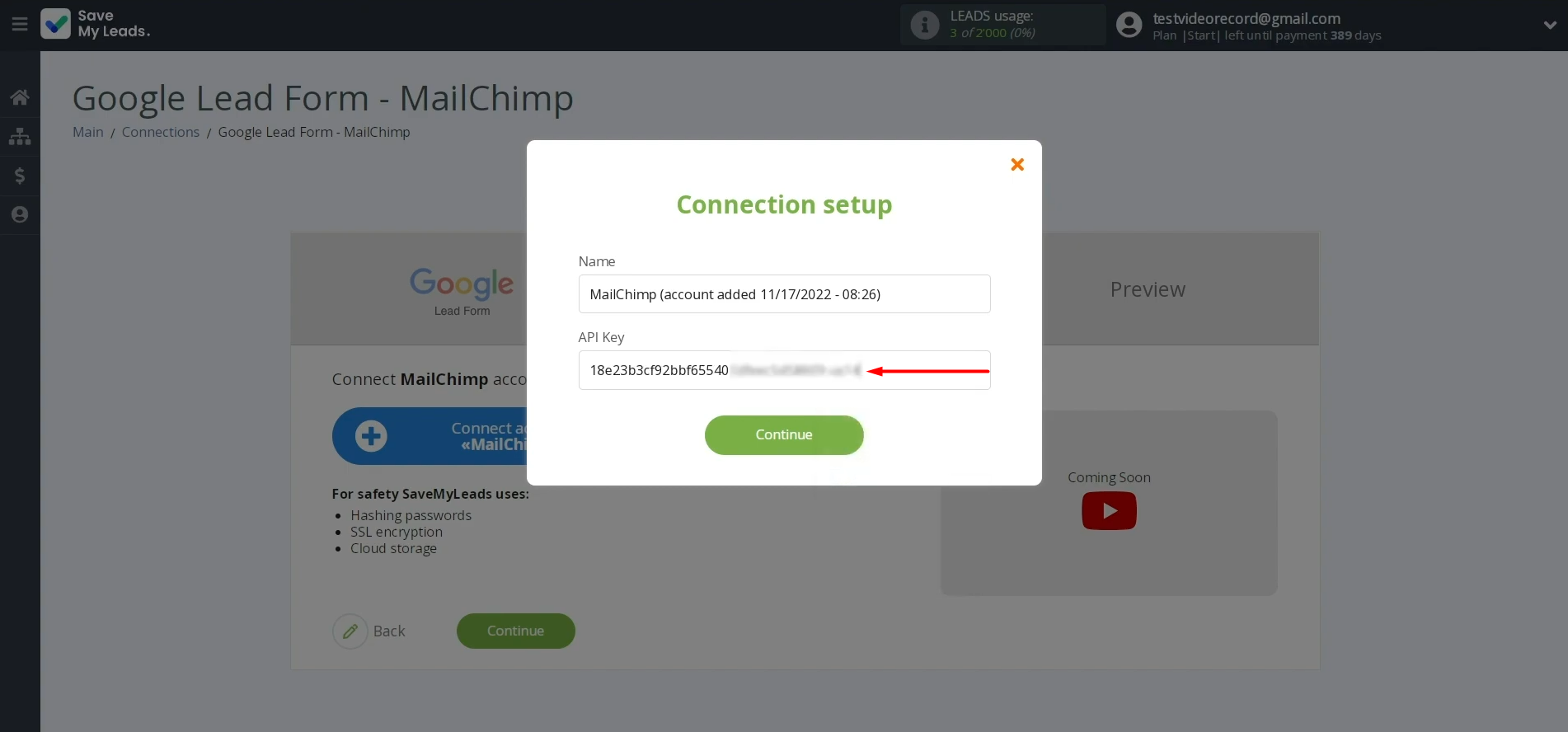
When the
connected account is displayed in the list, select it.
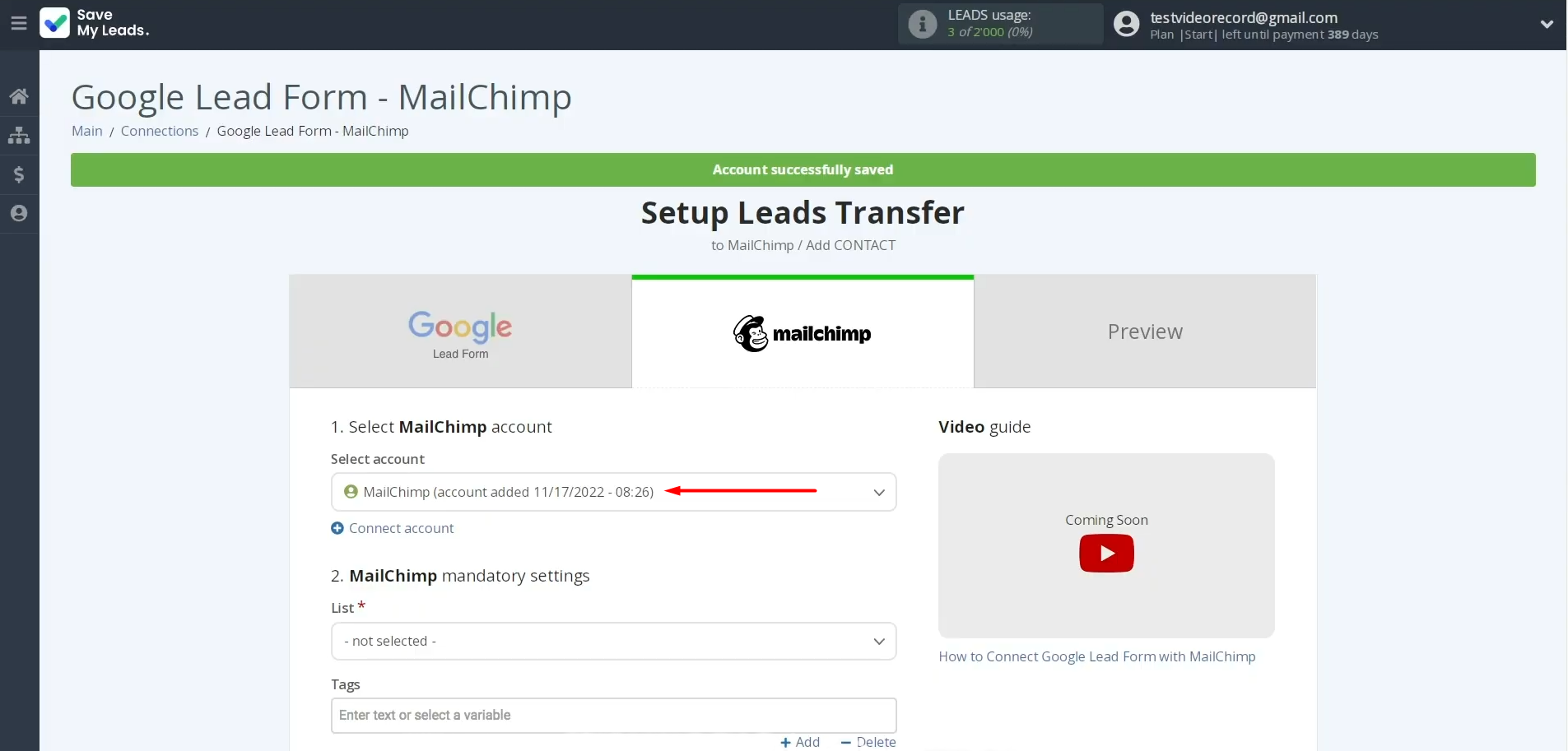
Specify the
list to which the data will be transferred.
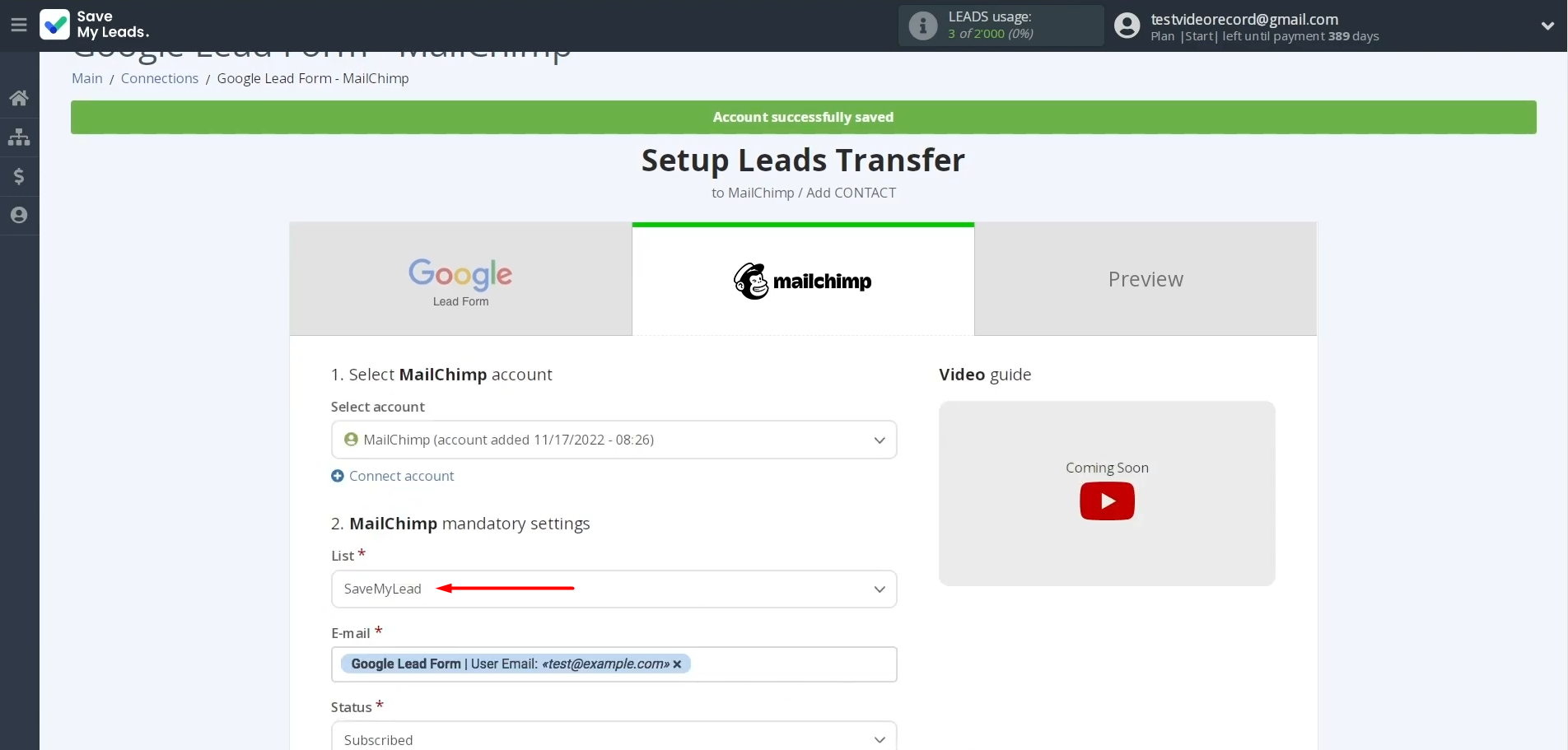
Now, you see
Mailchimp fields
where you can assign variables from the Google Lead Form. SML has already done this, but if
something does not suit you, you can add variables from the drop-down list.
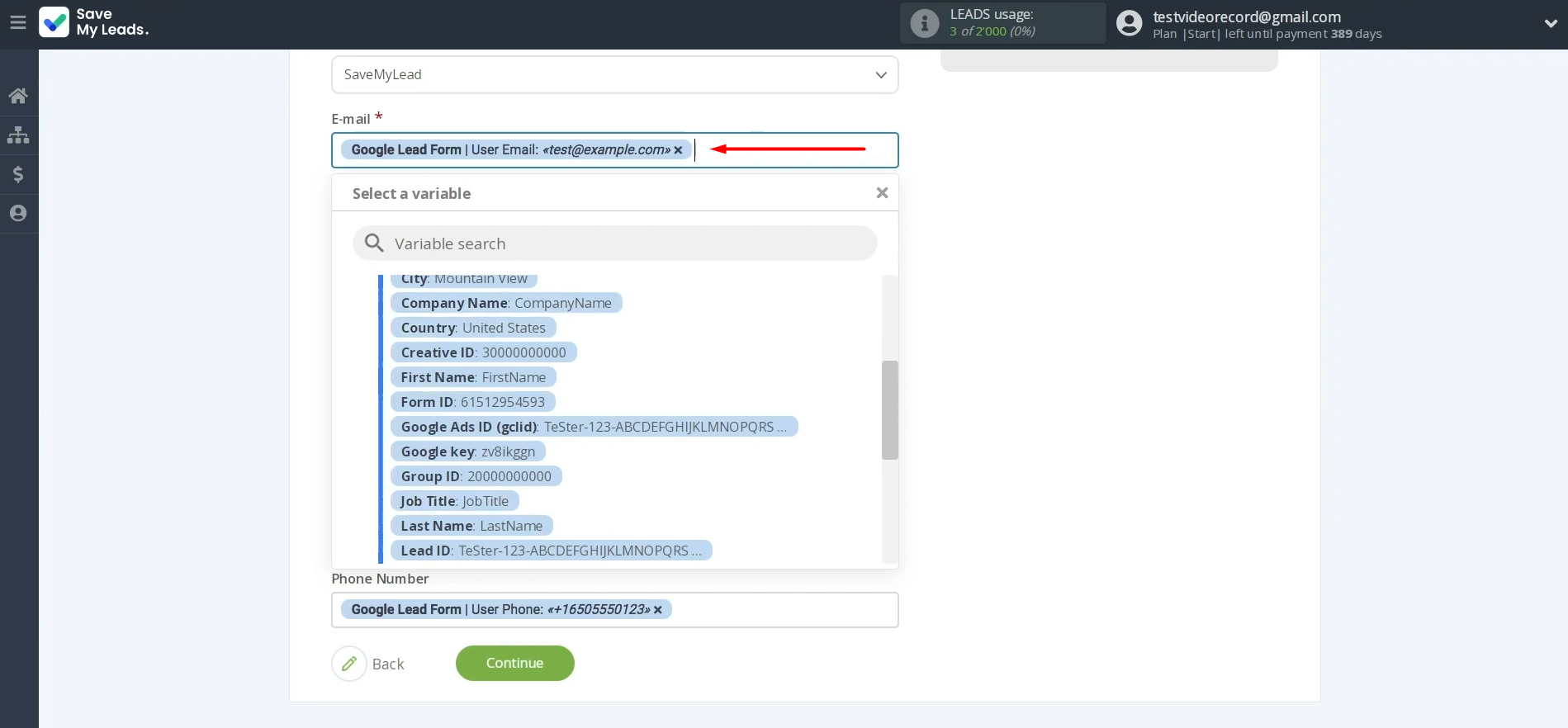
When all the
necessary data is assigned, click "Continue".
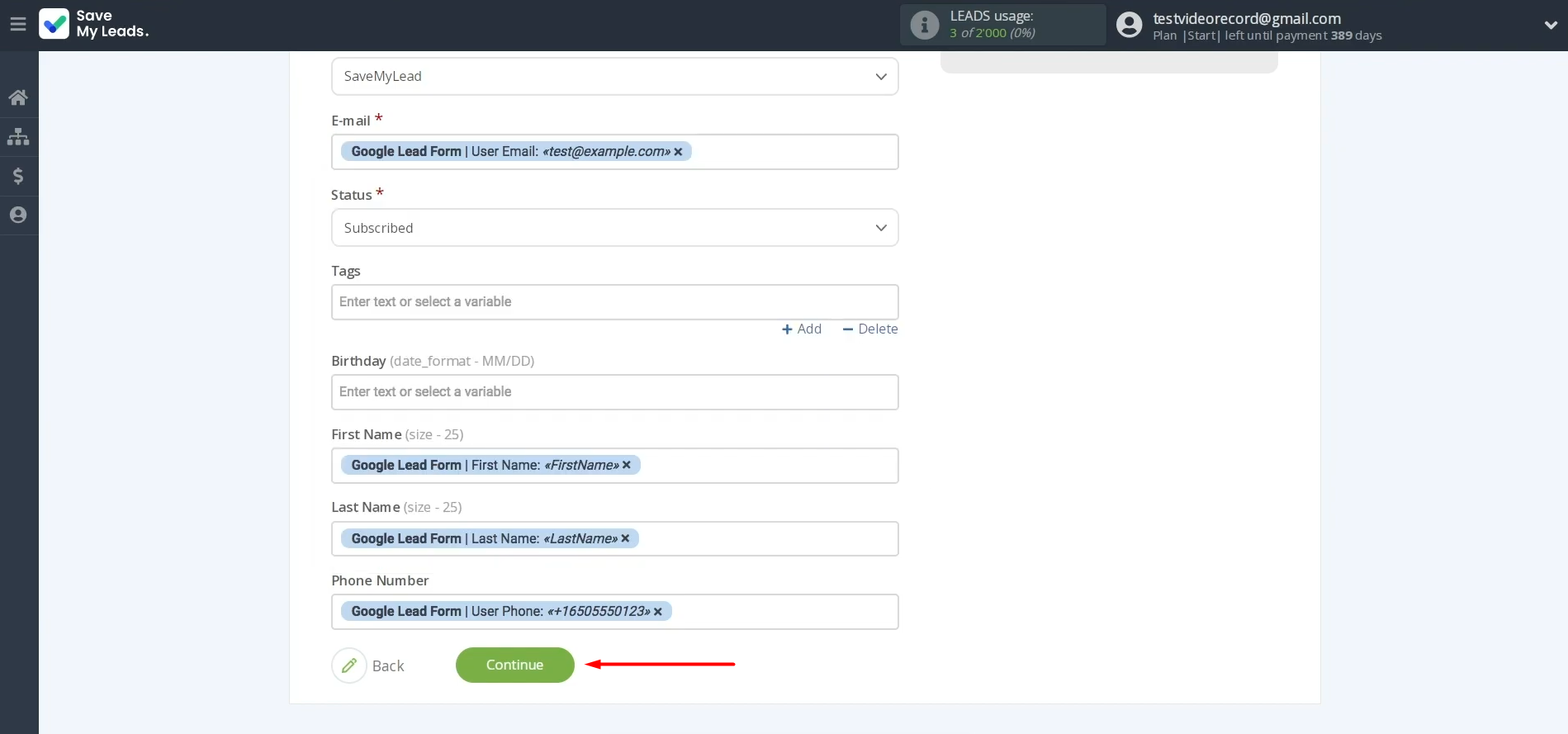
Here, you see an
example of the data that will be passed to Mailchimp with each new lead from
the Google Lead Form. If you don't have anything to change, click "Send Test Data to Mailchimp" to make sure your settings are correct.
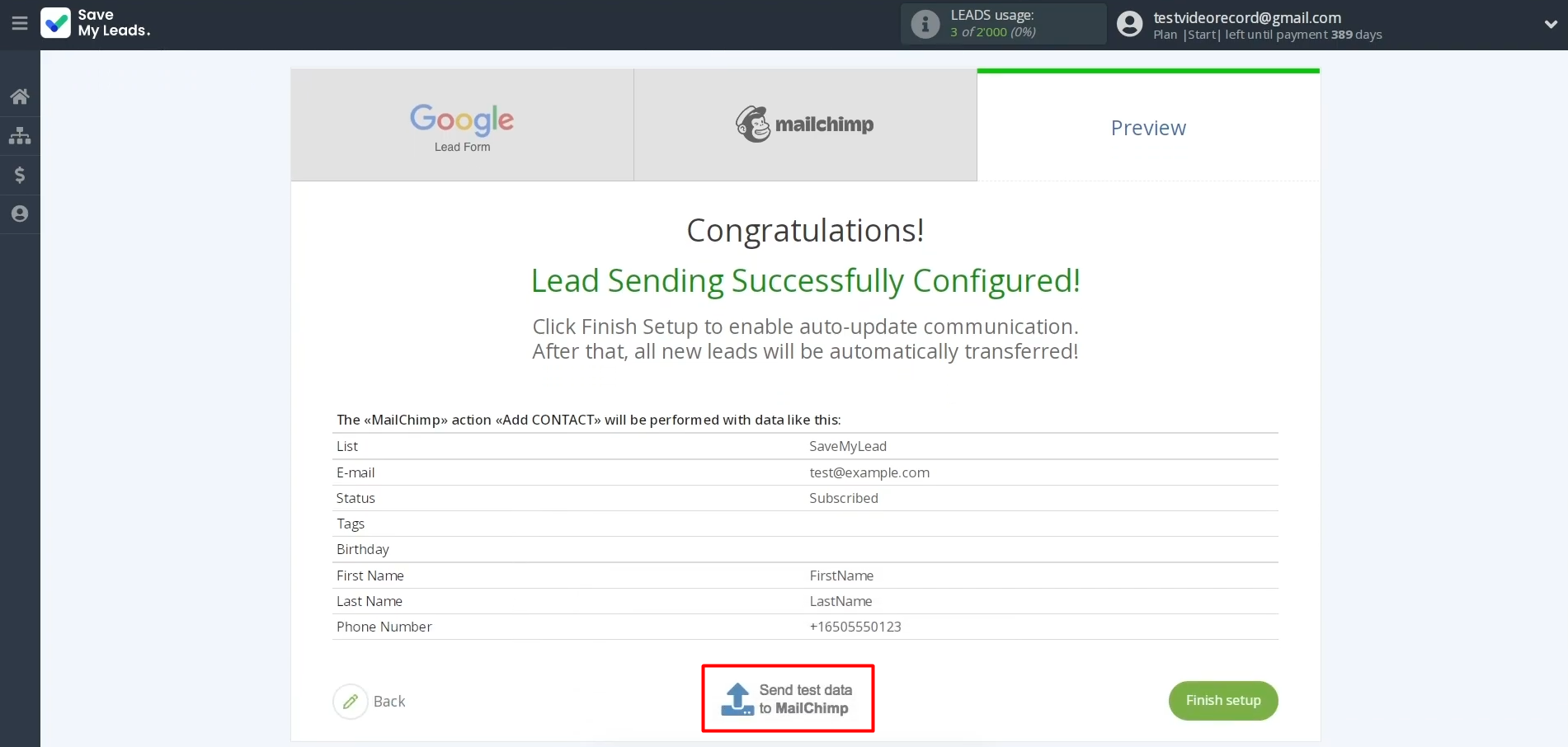
To check the
result, go to Mailchimp.
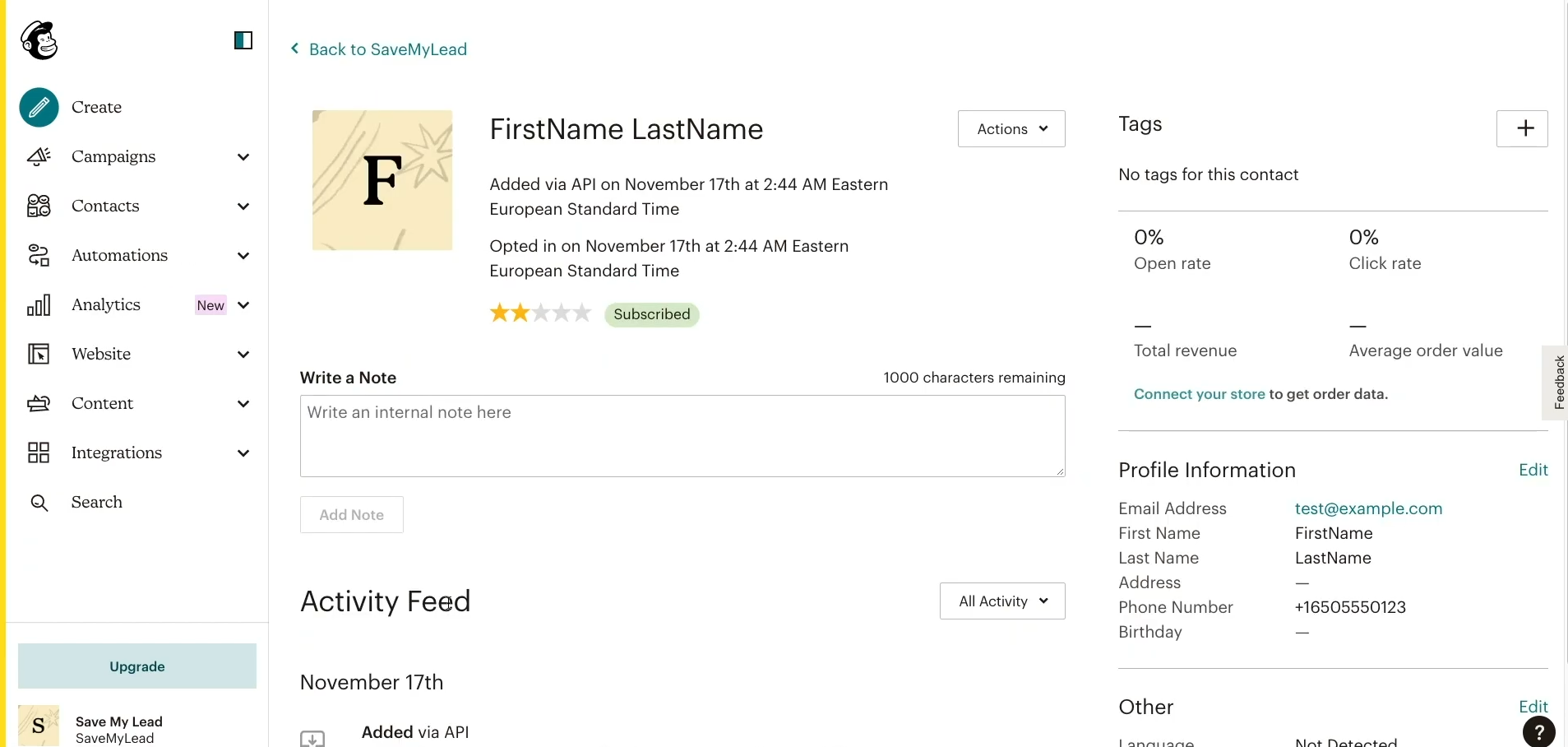
If you don't want to make any changes, return to SaveMyLeads to finish setting up.
Set Up Auto-Update
Click “Finish setup” to enable auto-update of the connection. In this case, all new leads from Google Lead Form will be instantly transferred to Mailchimp to create new contacts.
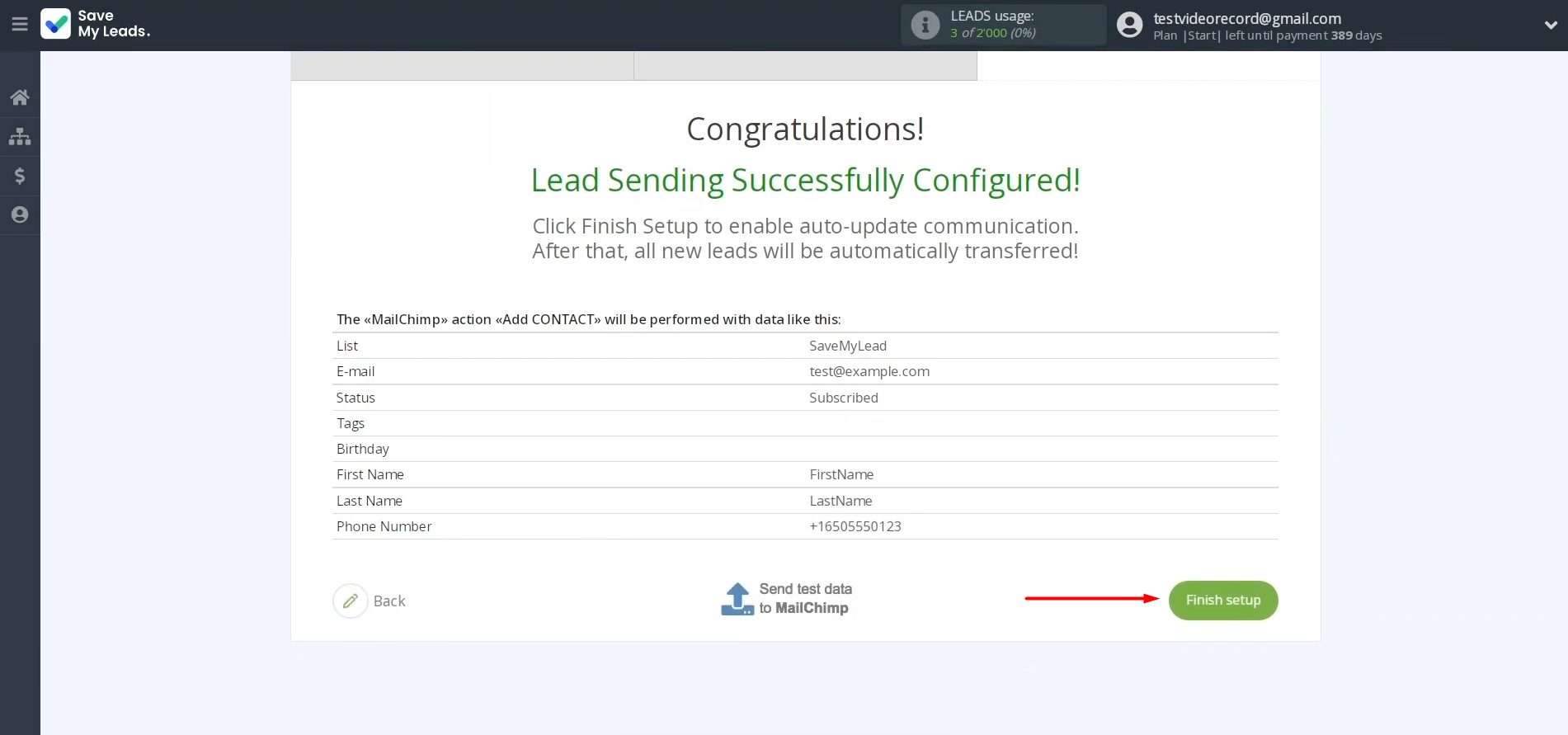
If you want to change the connection name you can do this in its
settings. To do this, click on the gear-shaped icon.
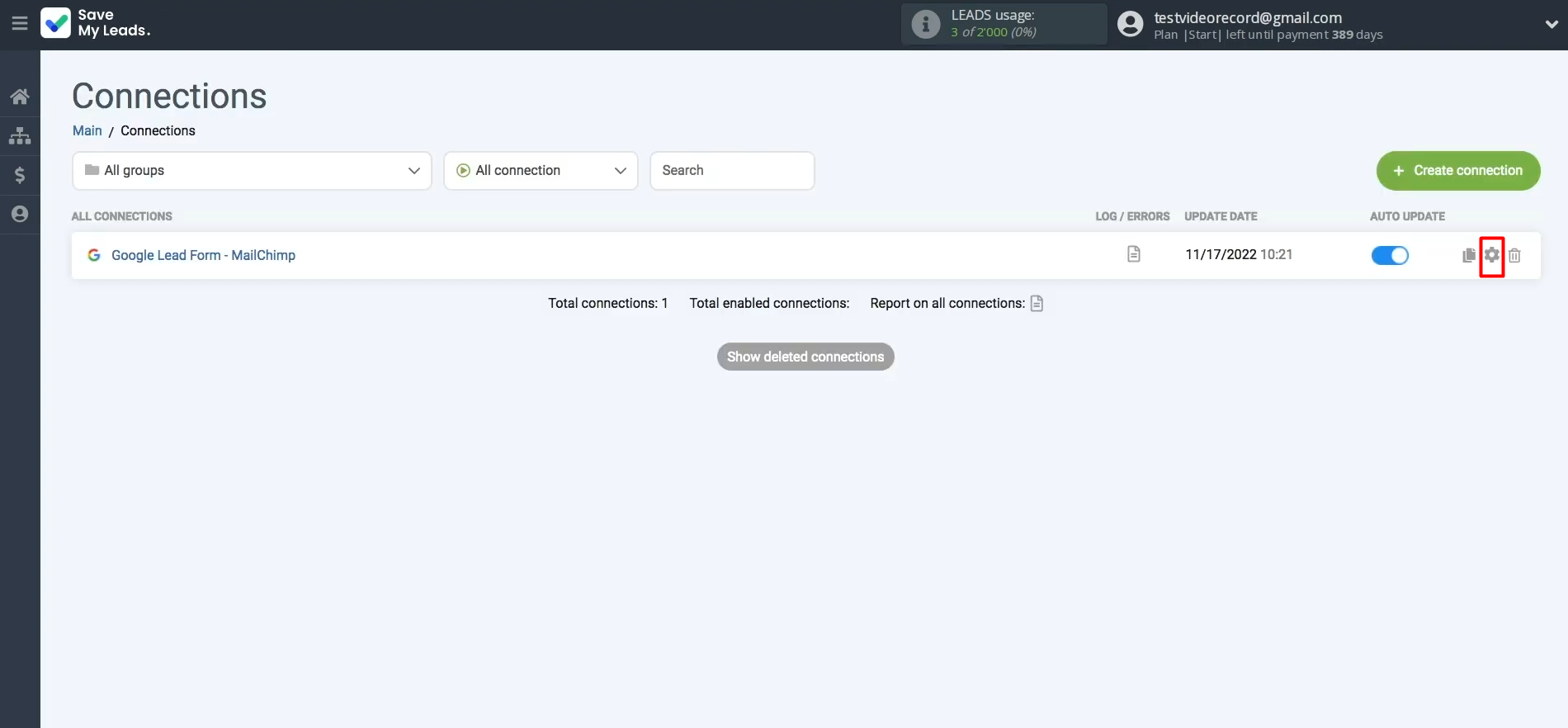
Here, you can change the connection name and add it to a
group. After that, click “Continue”.
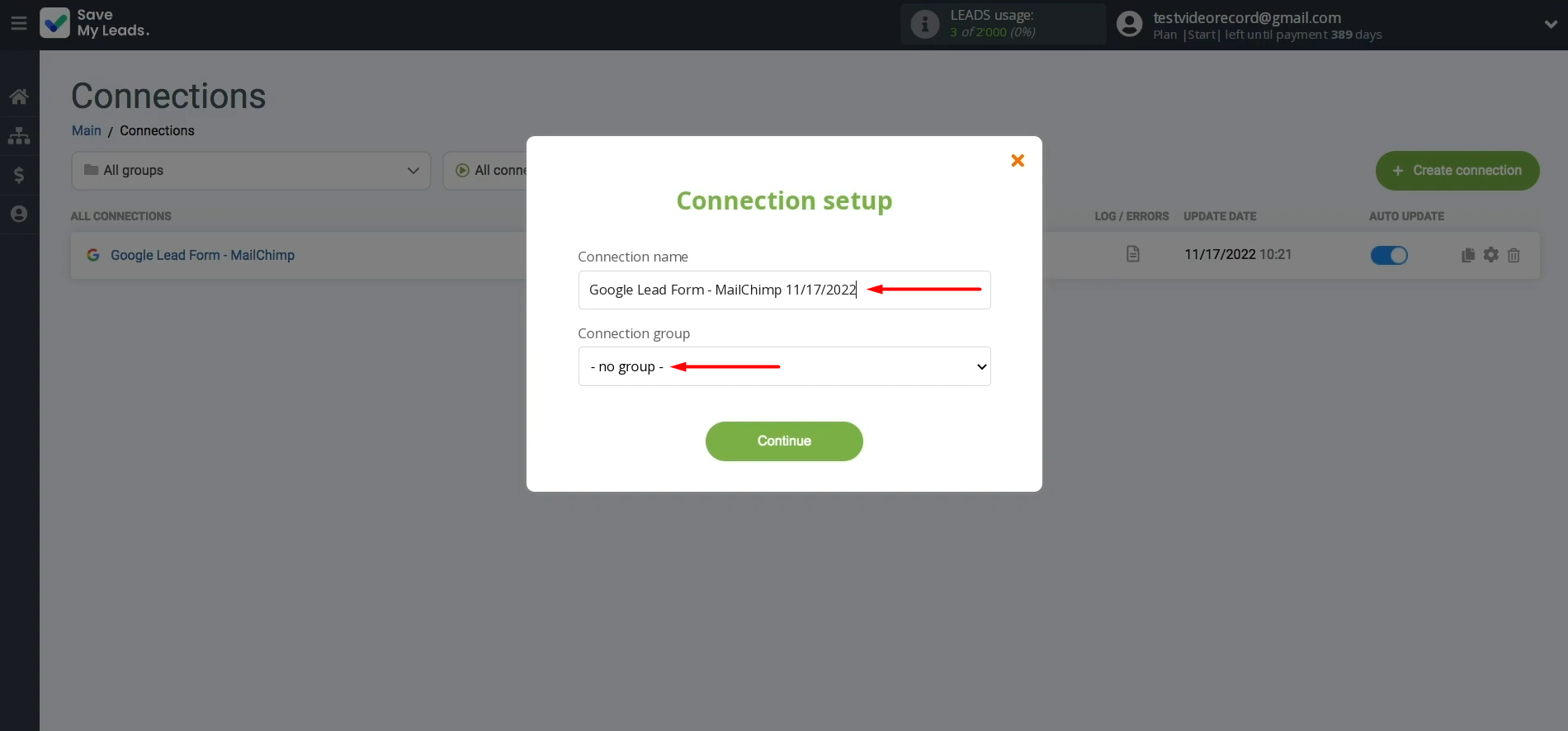
That's all. The integration has been completed.
Let's Sum It Up
Once you have completed the Mailchimp + Google Lead Form integration setup following our recommendations and enabled the automatic update feature, you have established a stable connection between these systems. You may have even already had time to appreciate its benefits – the first results of automatic data transfer.
With the Google Lead Form and Mailchimp integration, you no longer need to manually transfer lead contacts. This process is fully automated. Our online connector SaveMyLeads is always ready to come to the aid of your business and take on all the routine work. Now you can focus your efforts on improving the quality of customer service, developing new business strategies, and other key aspects of activities that will contribute to the growth and development of your enterprise.
Step-by-Step Guides for Setting Up Integrations:
